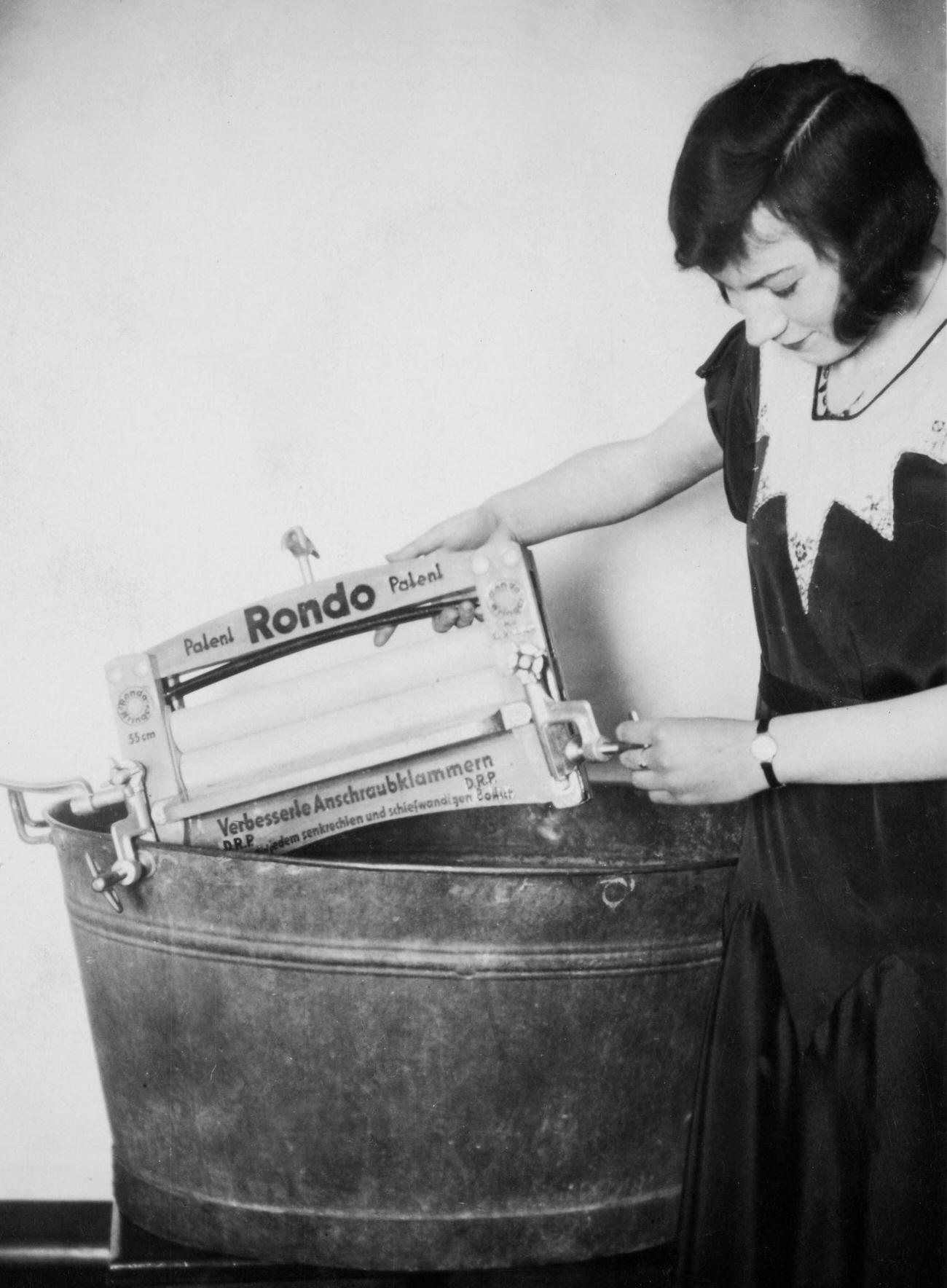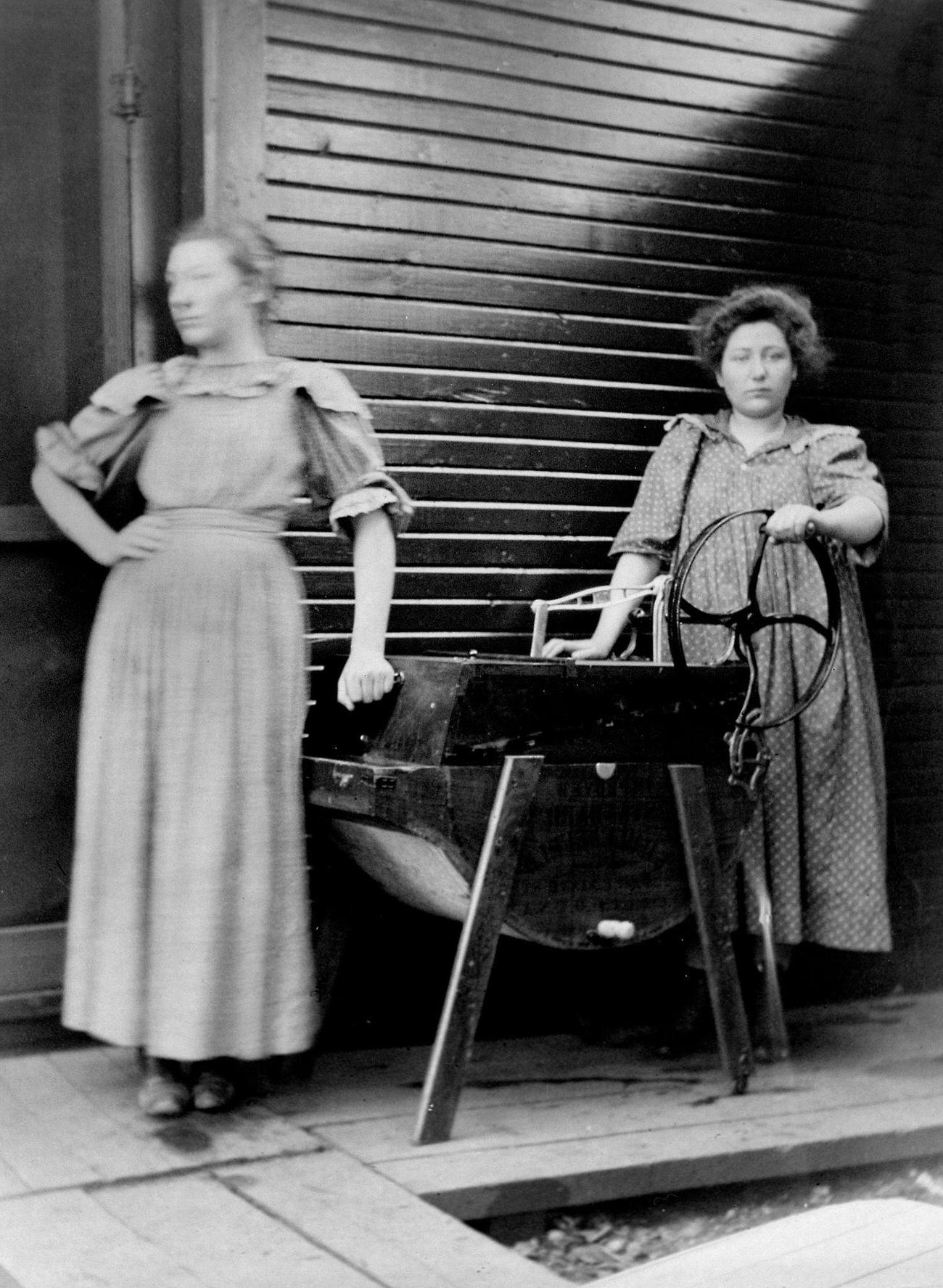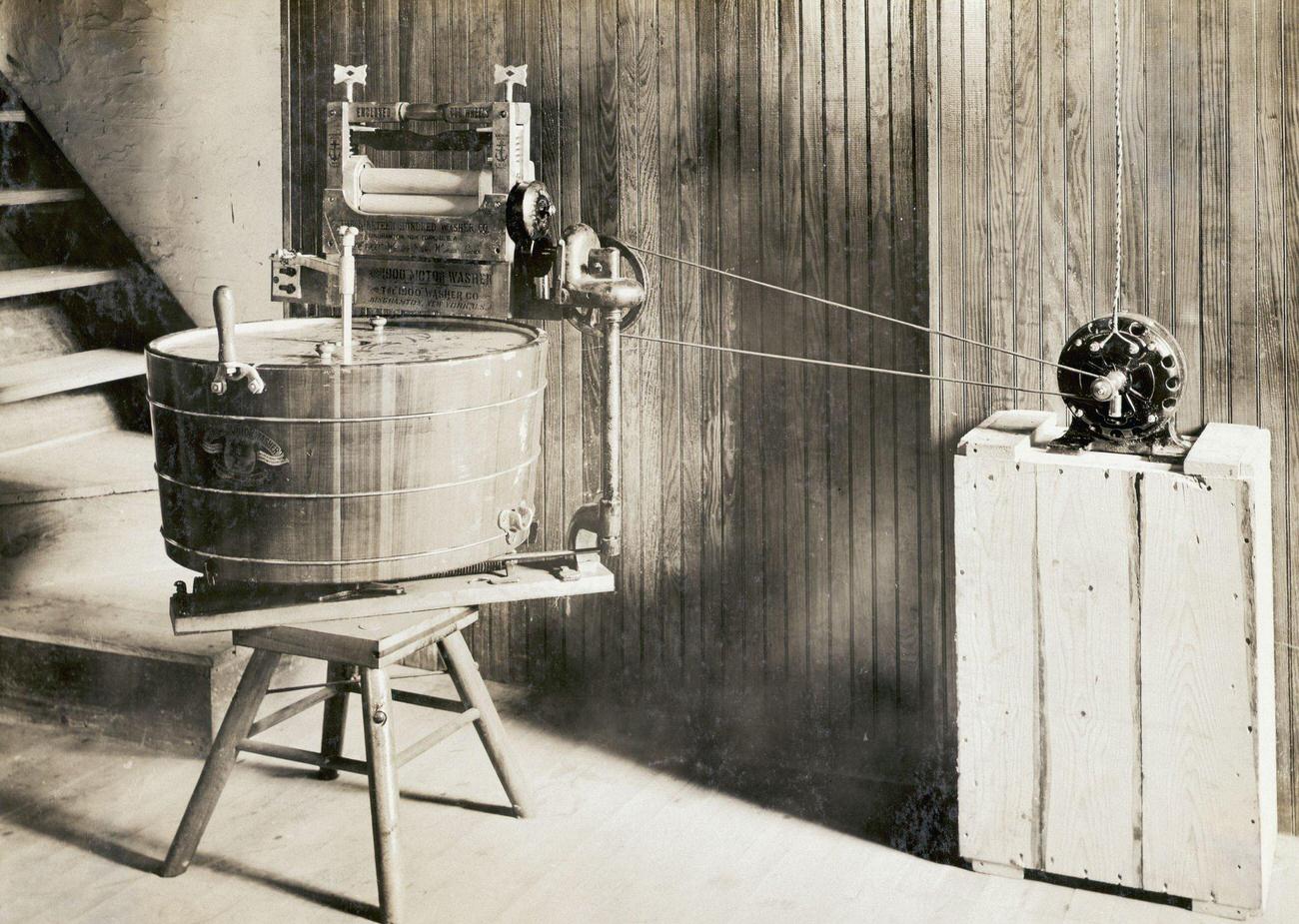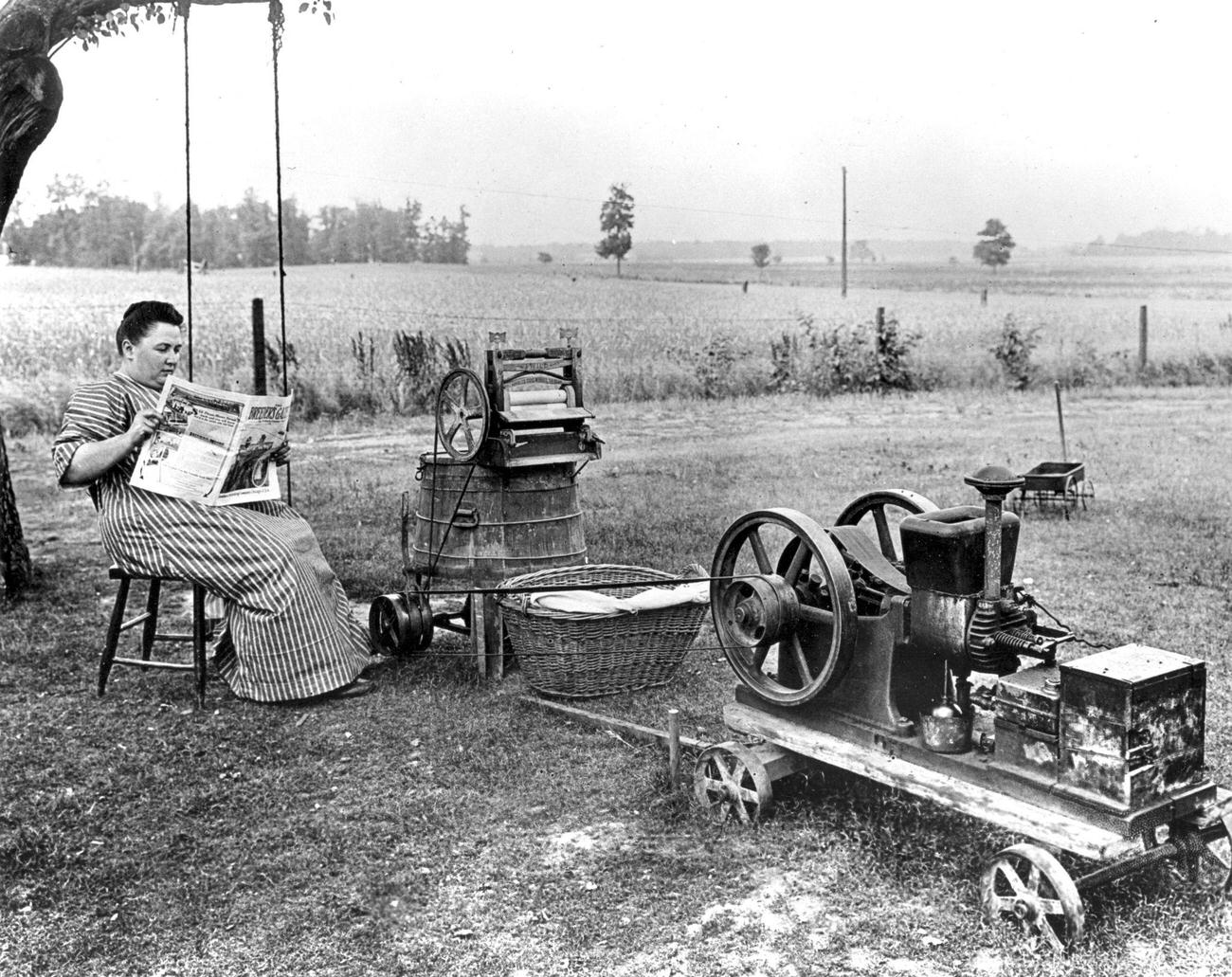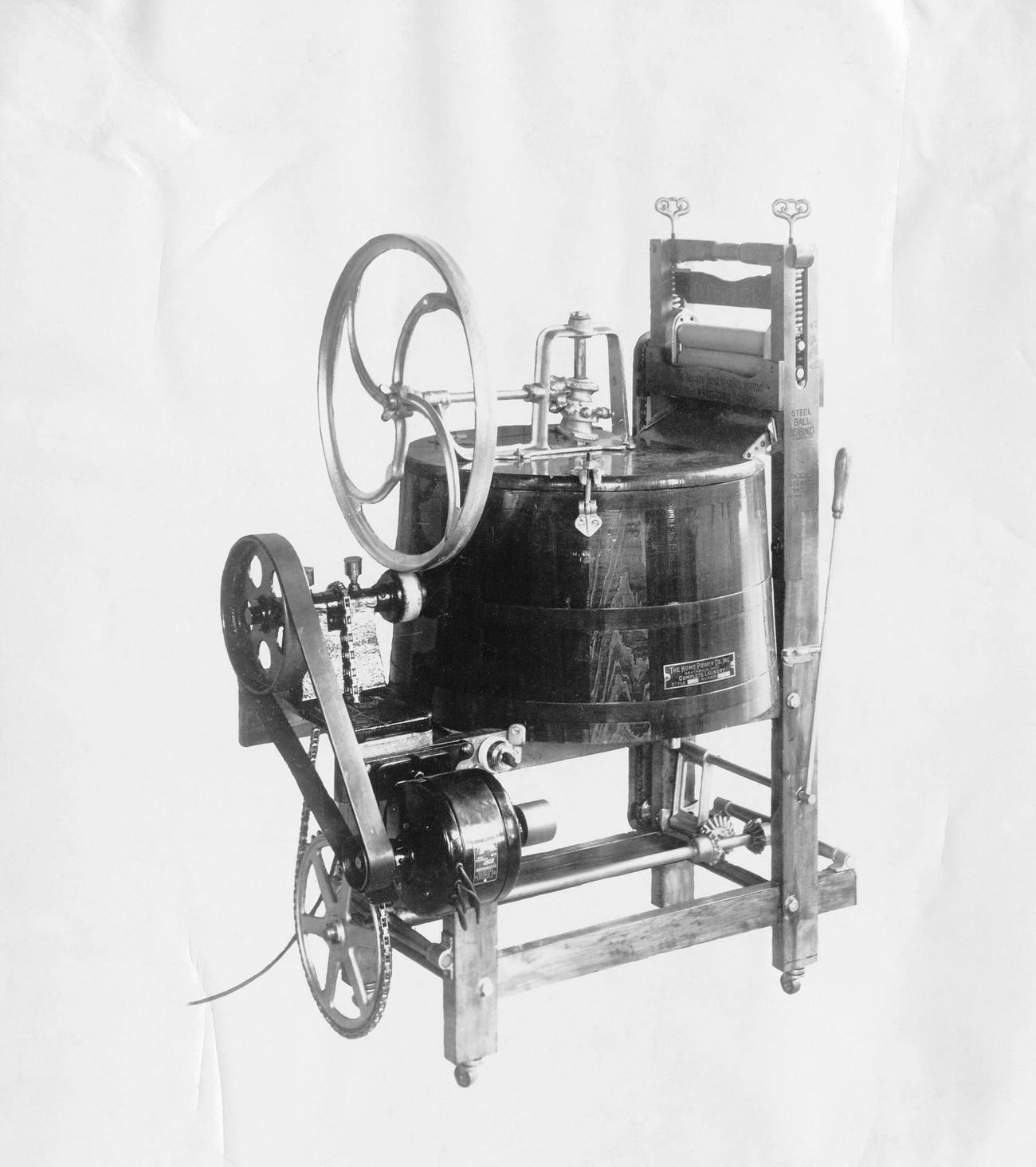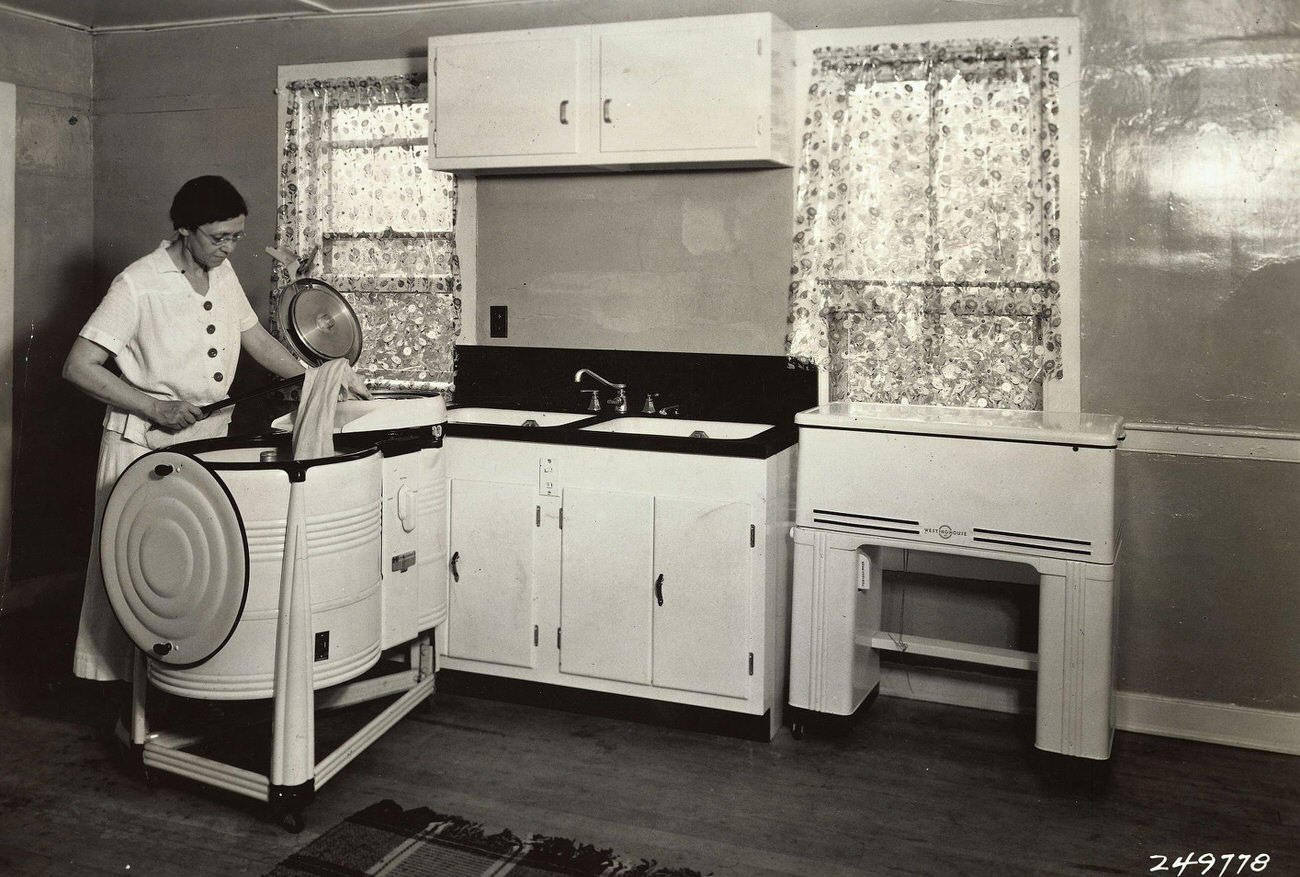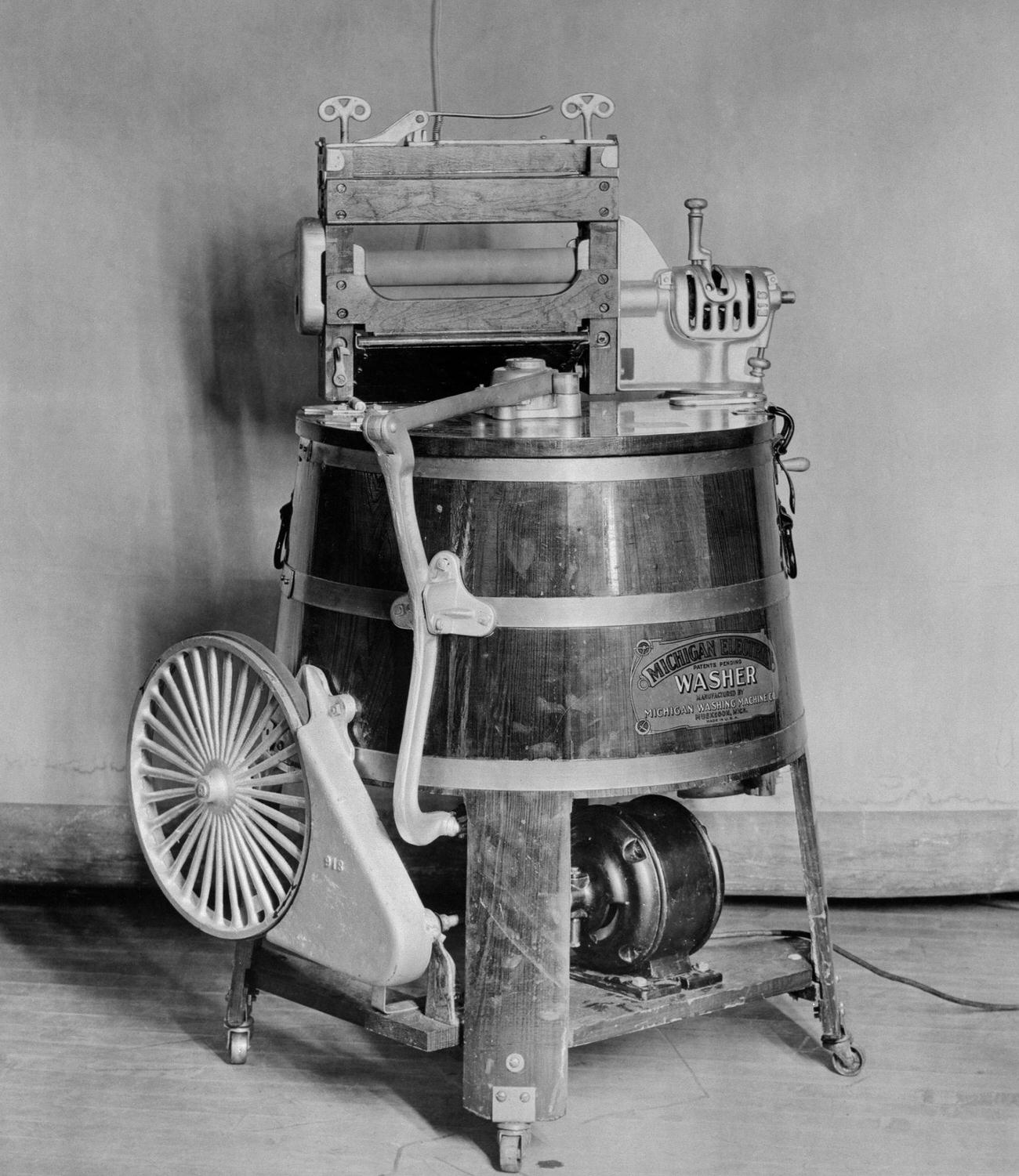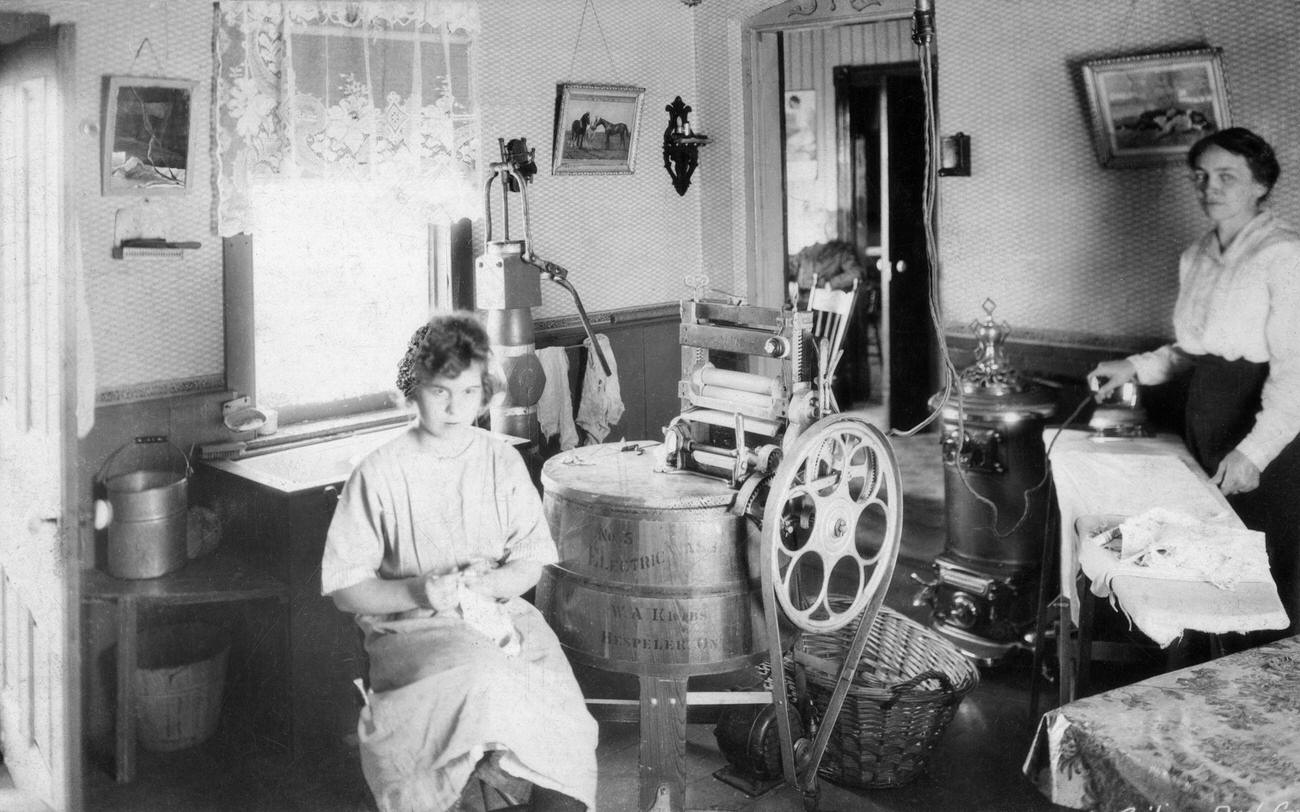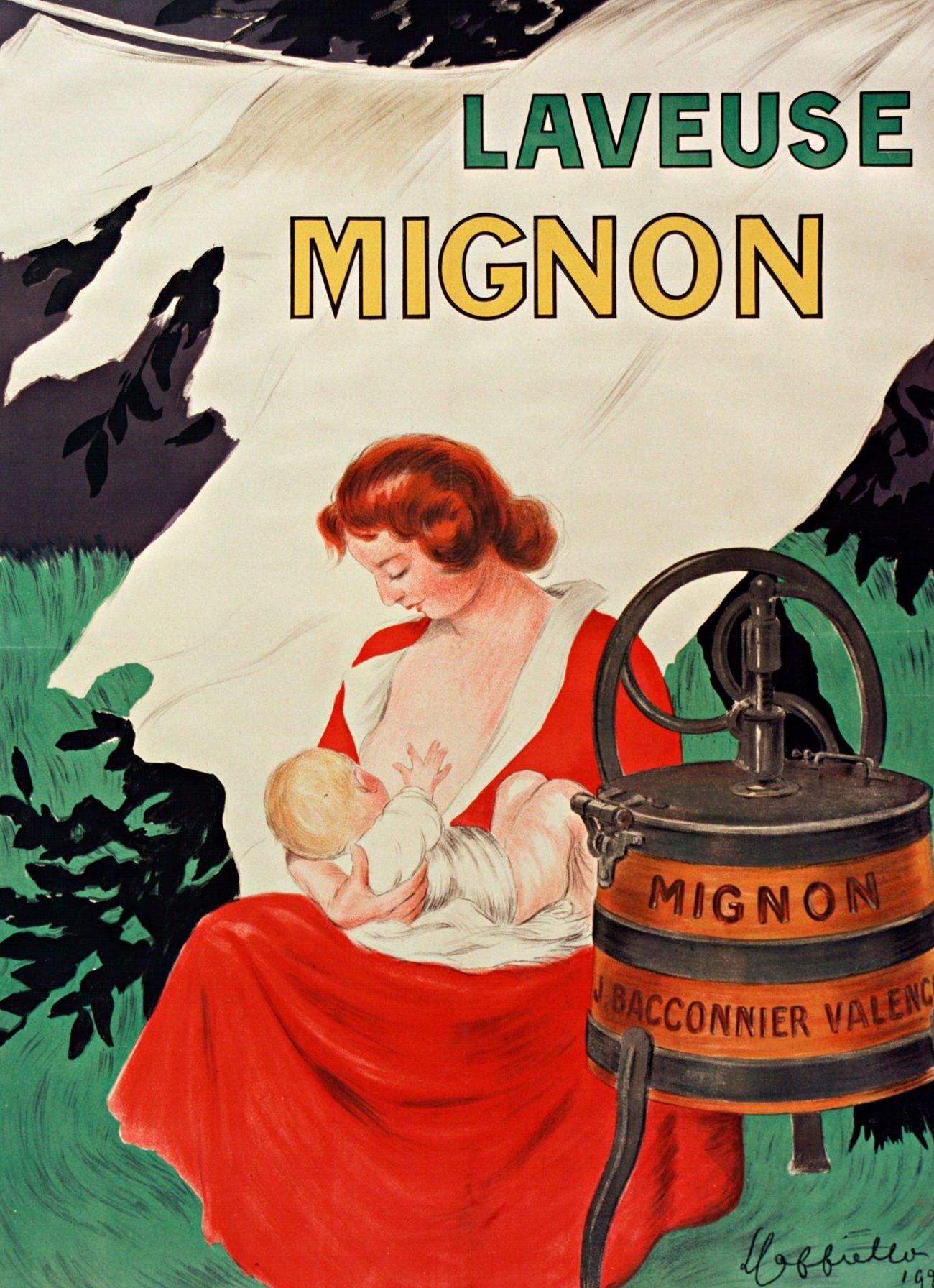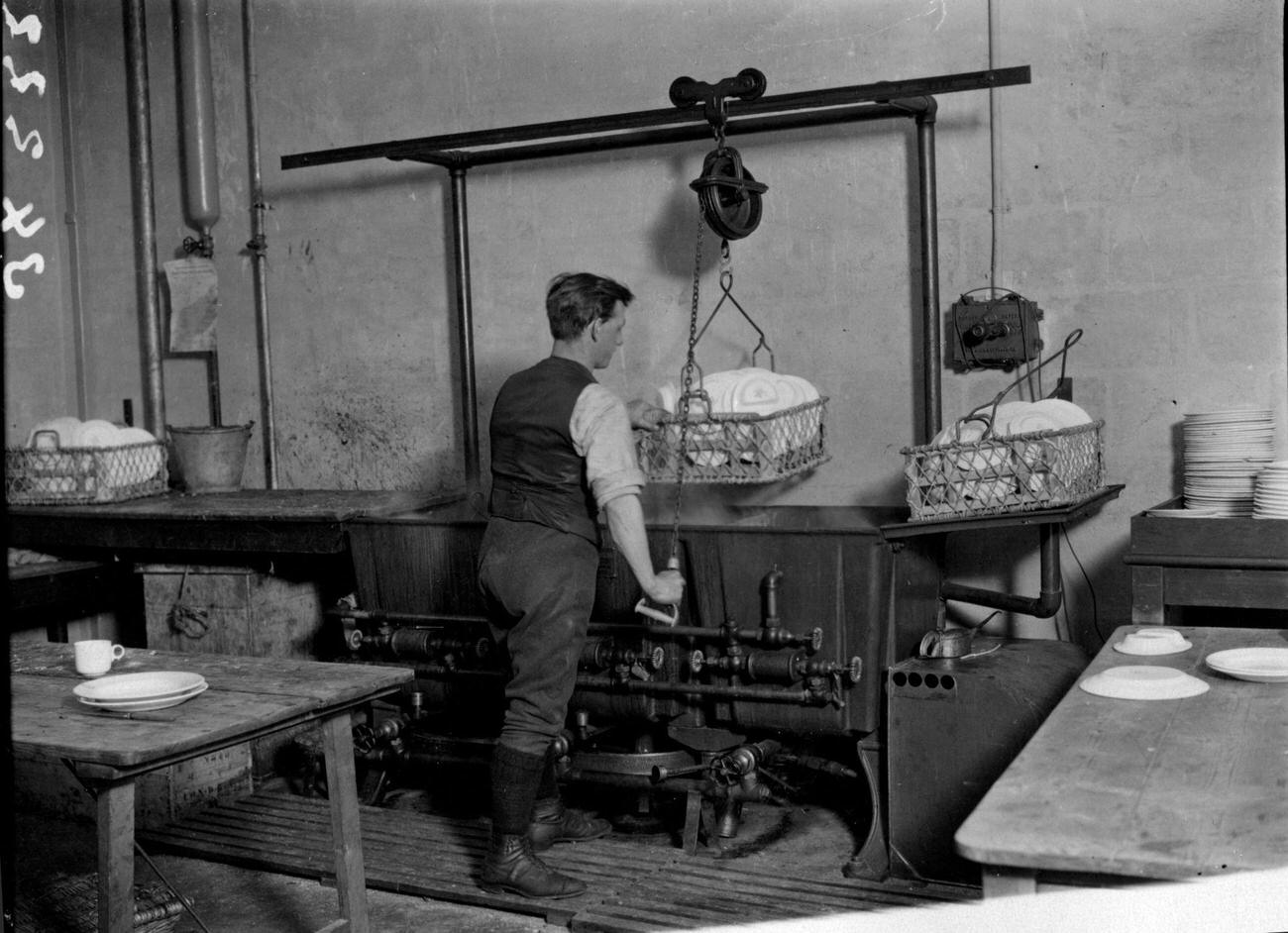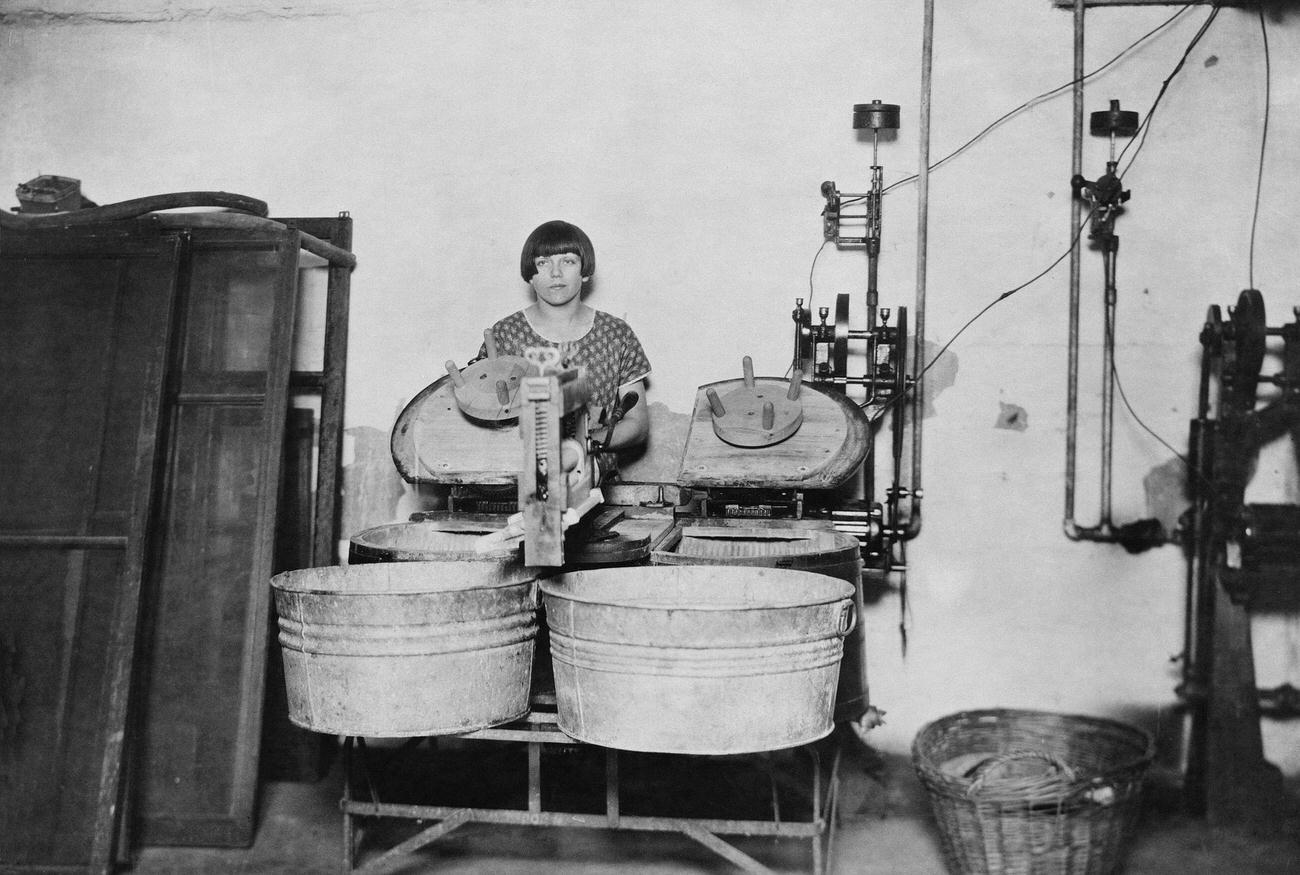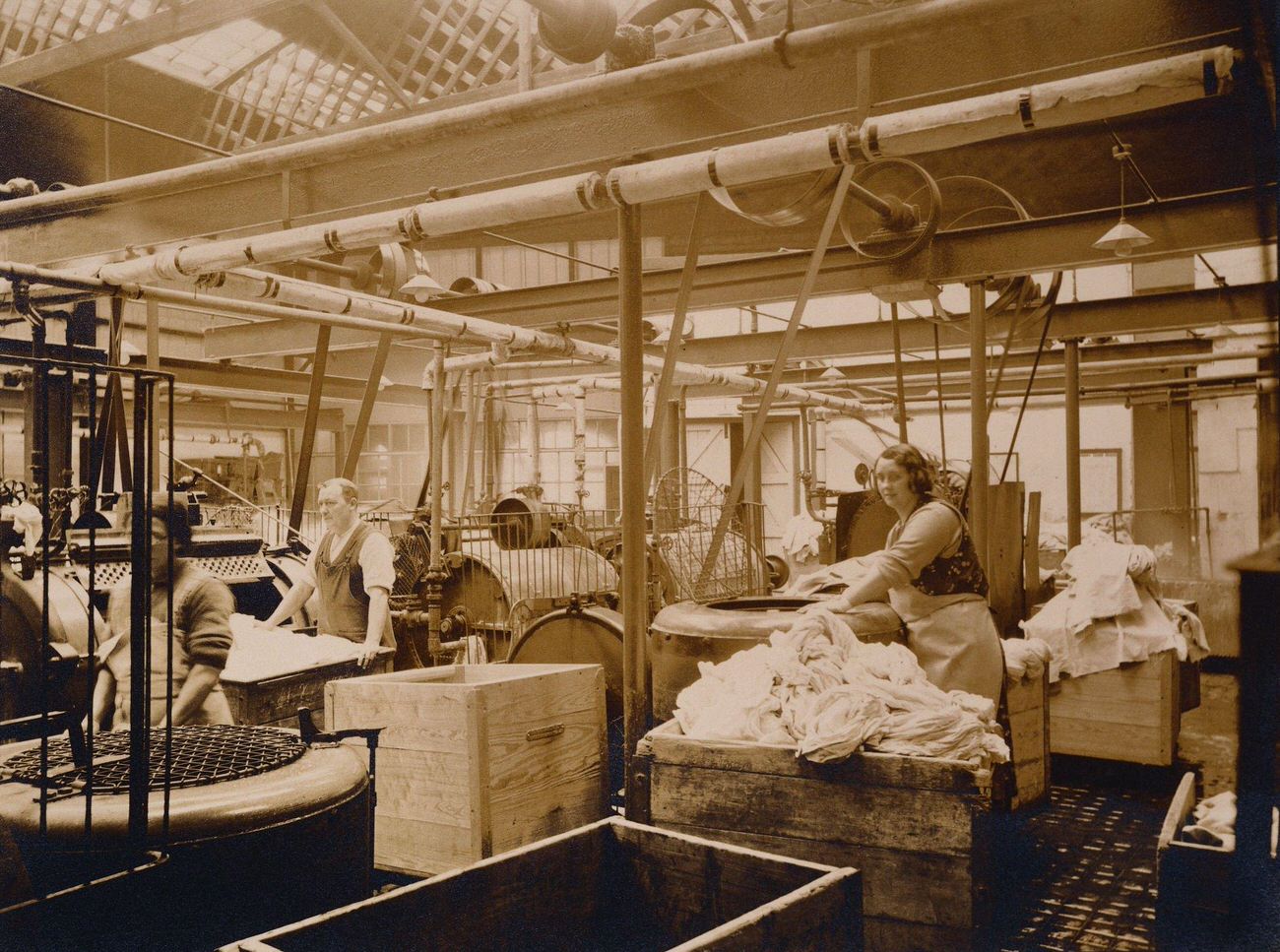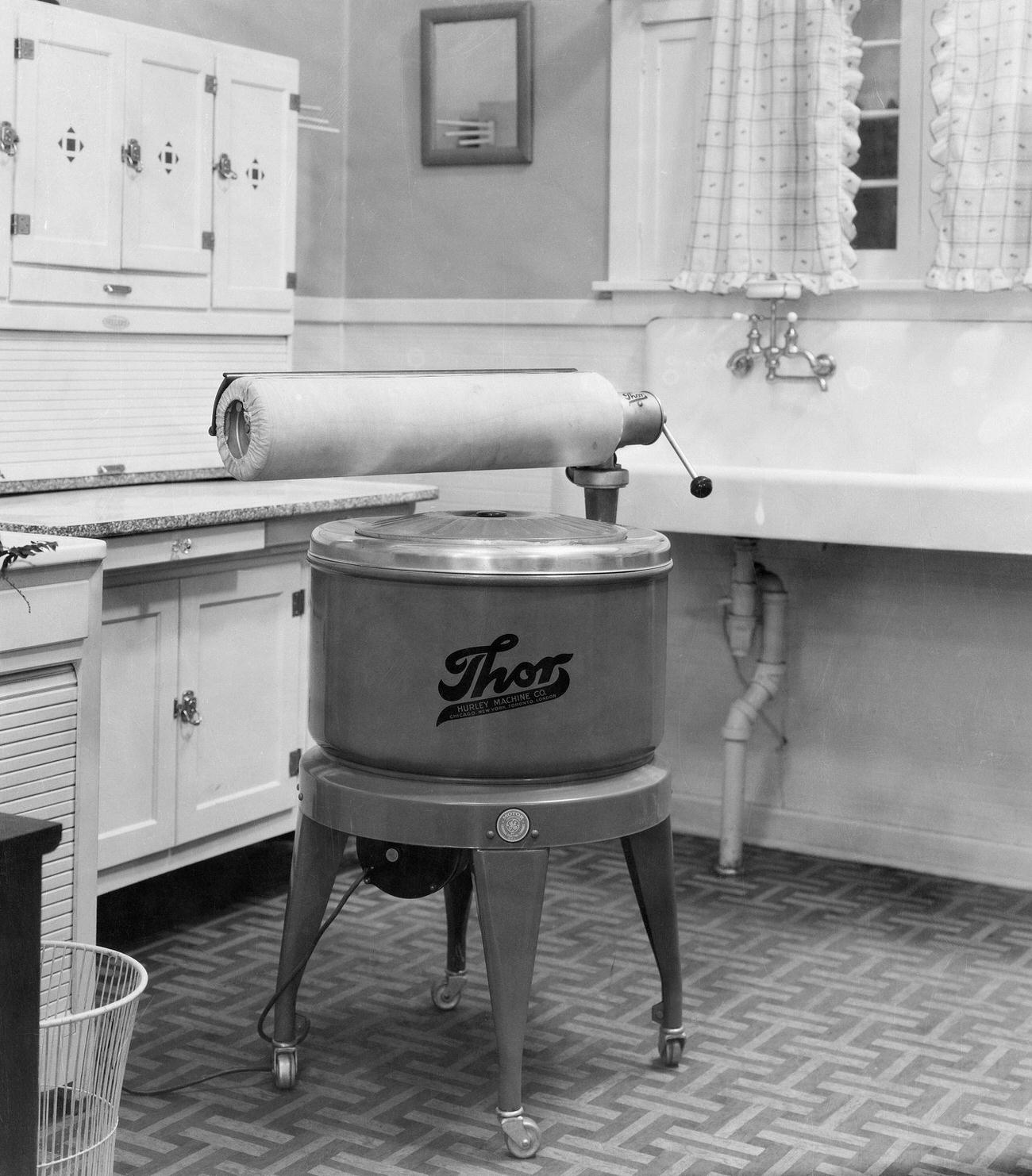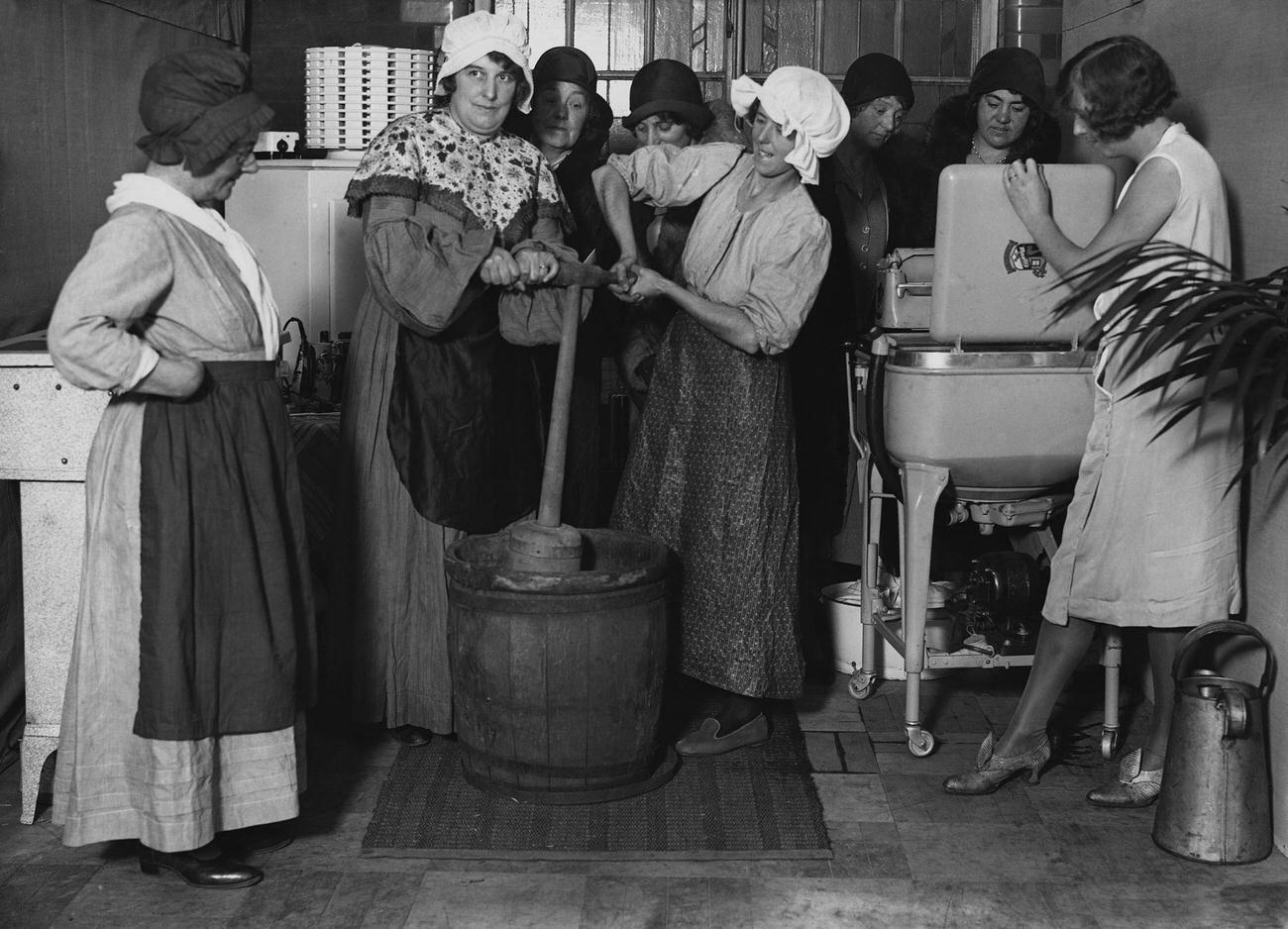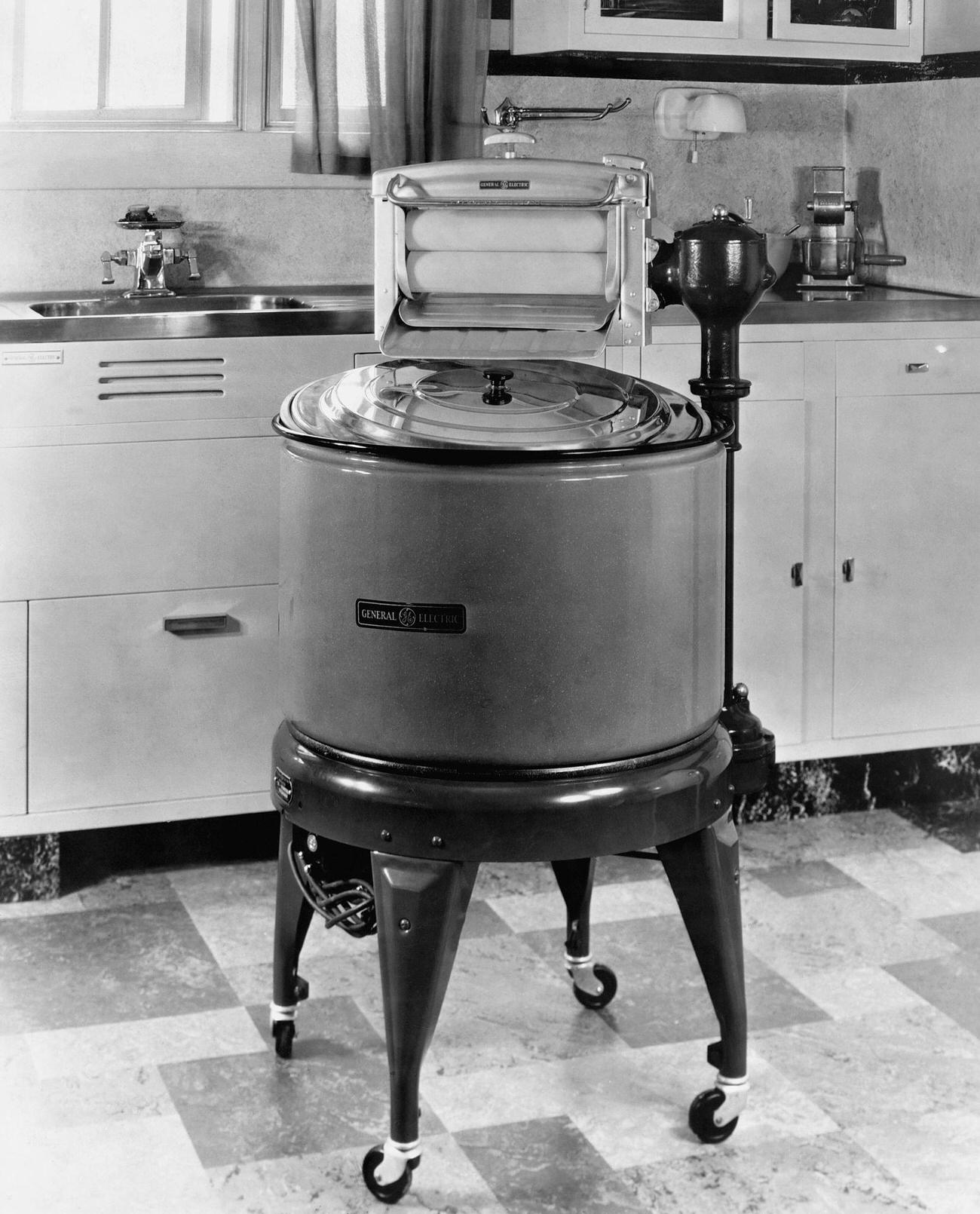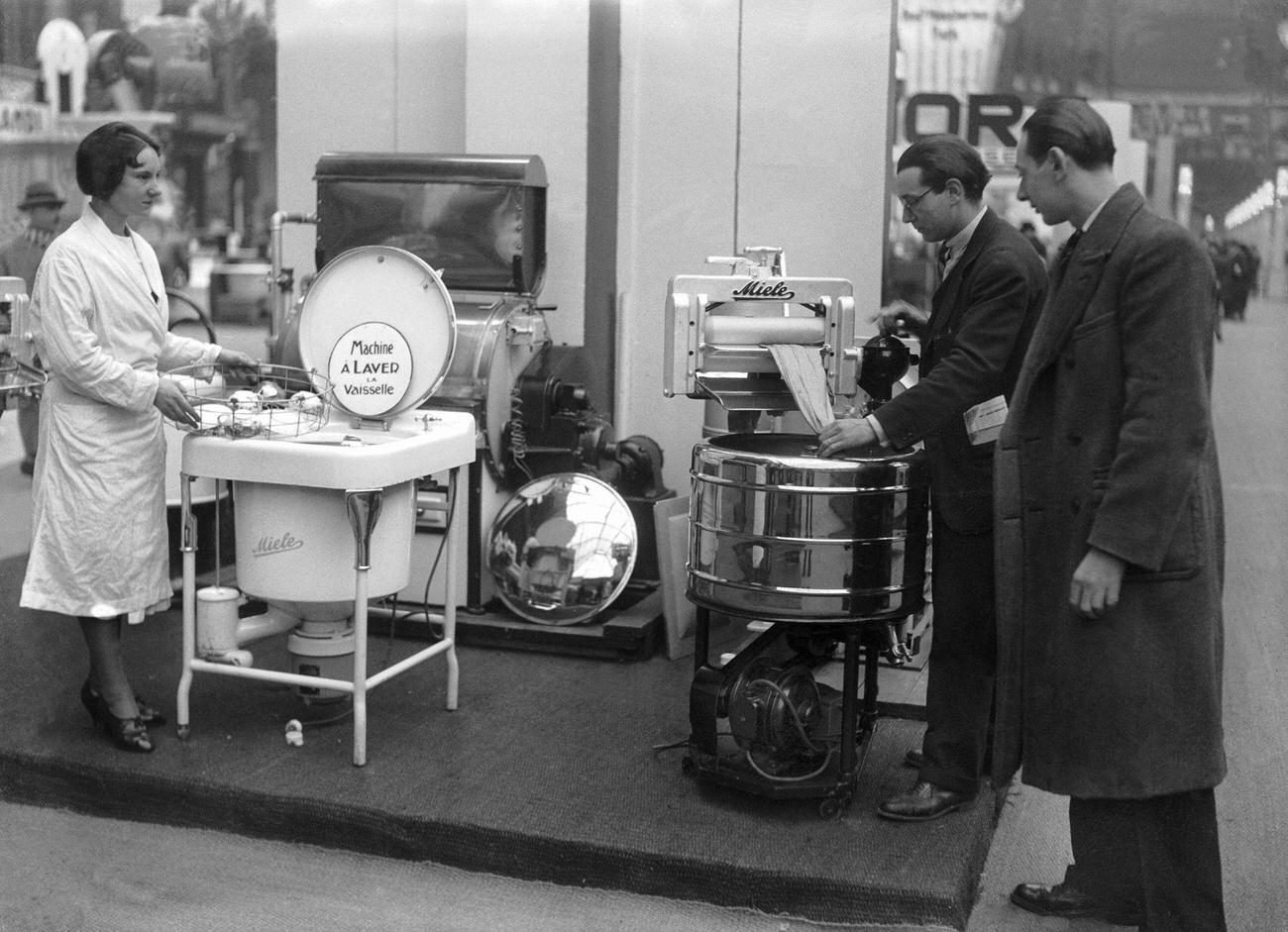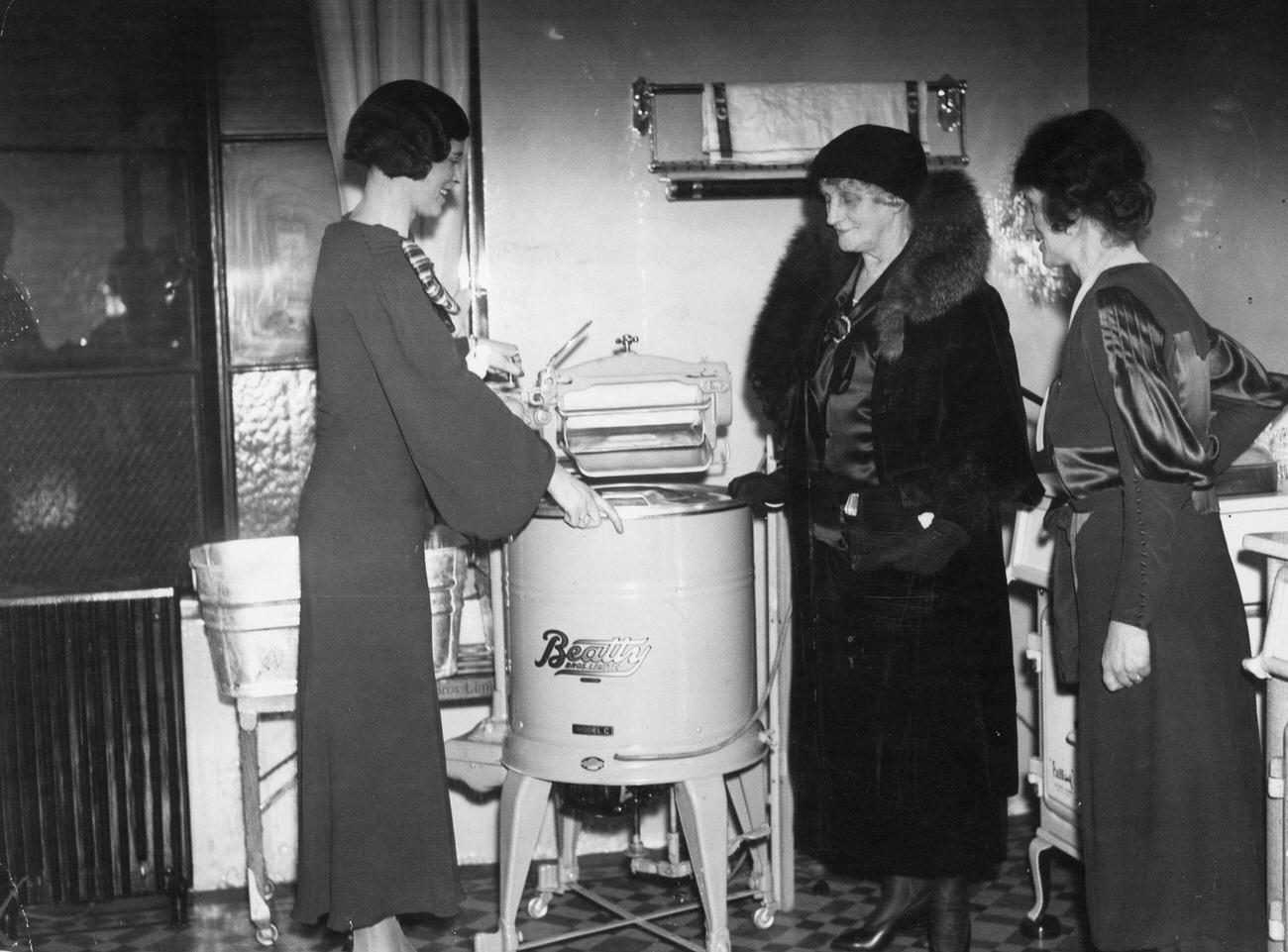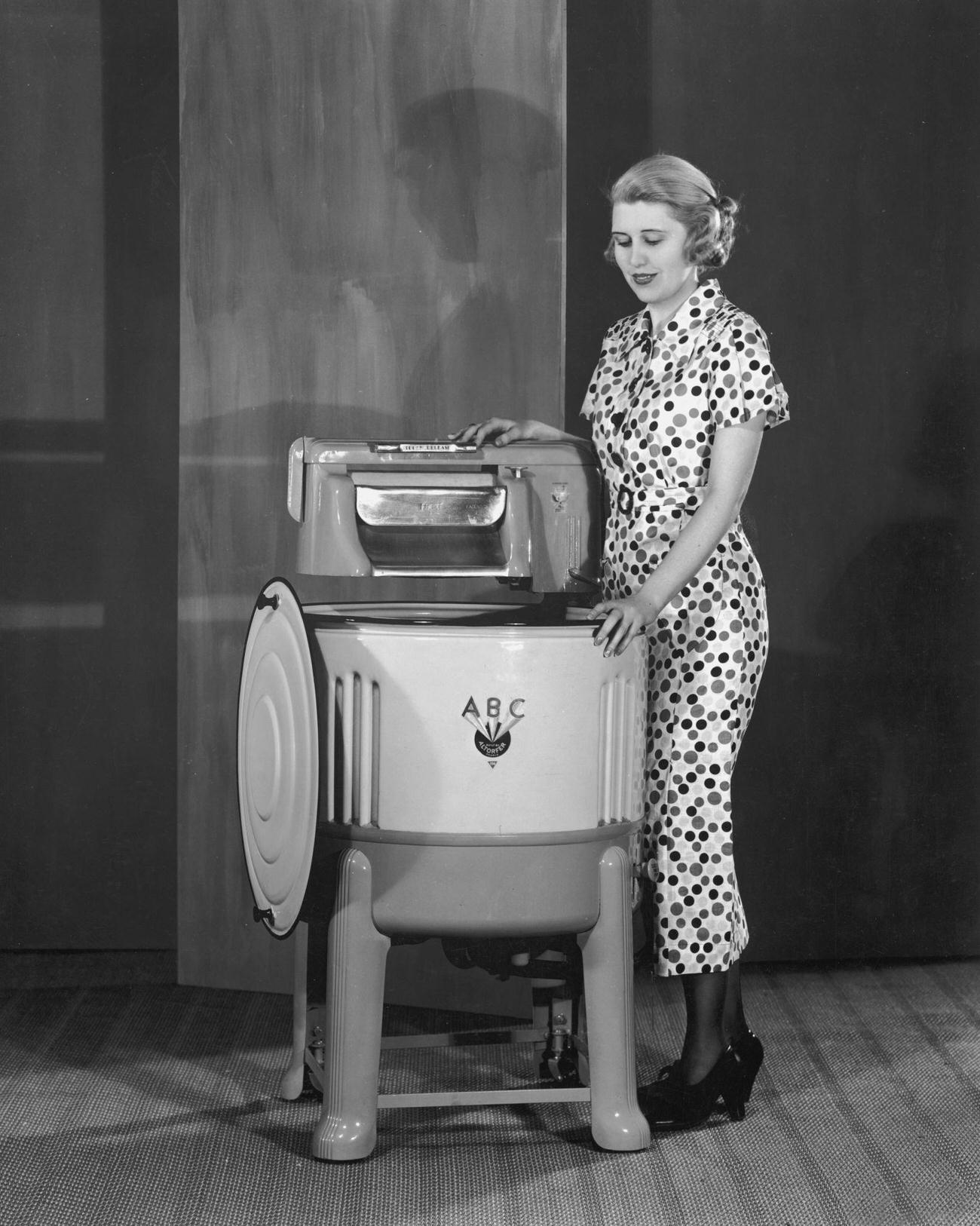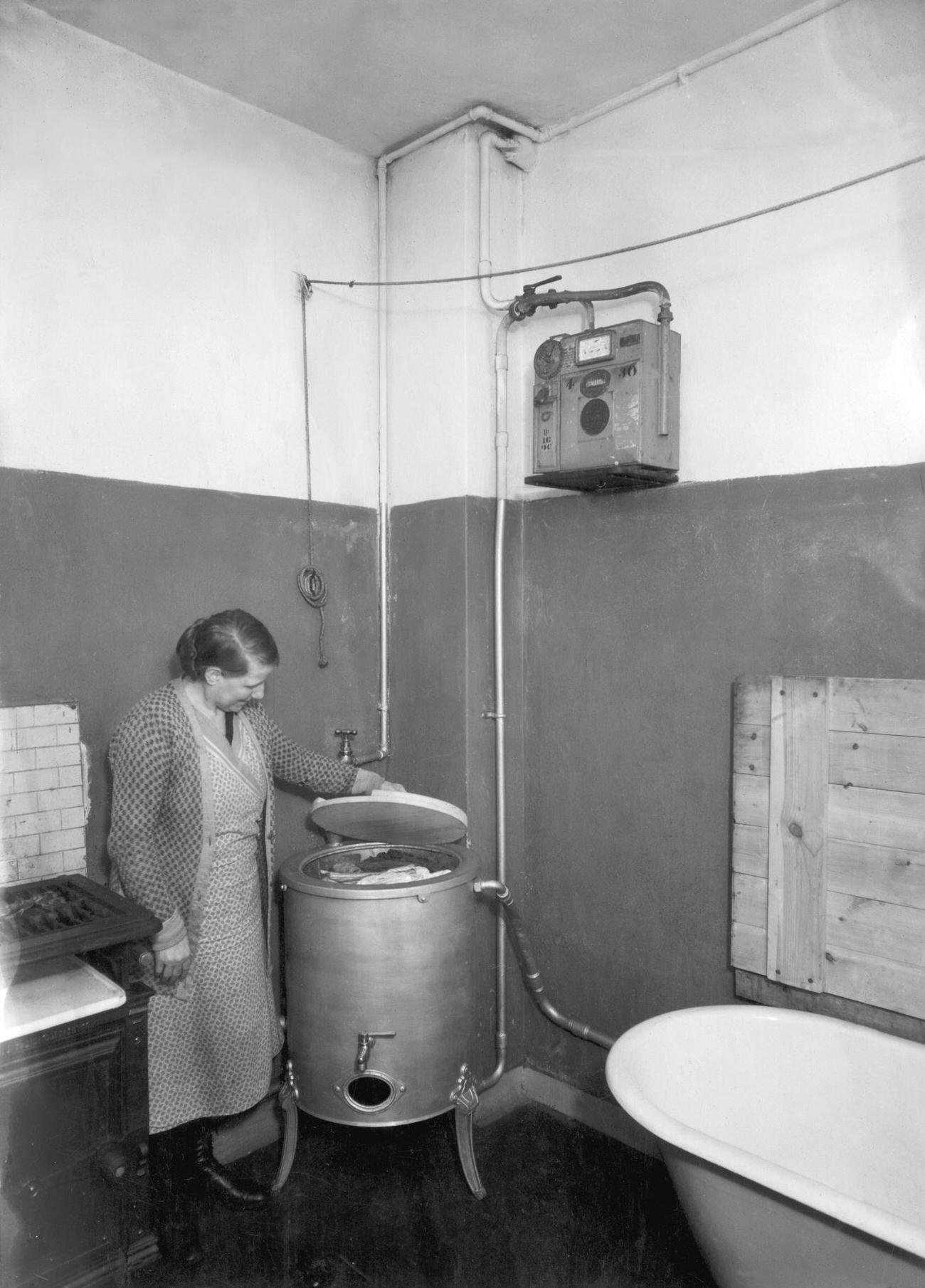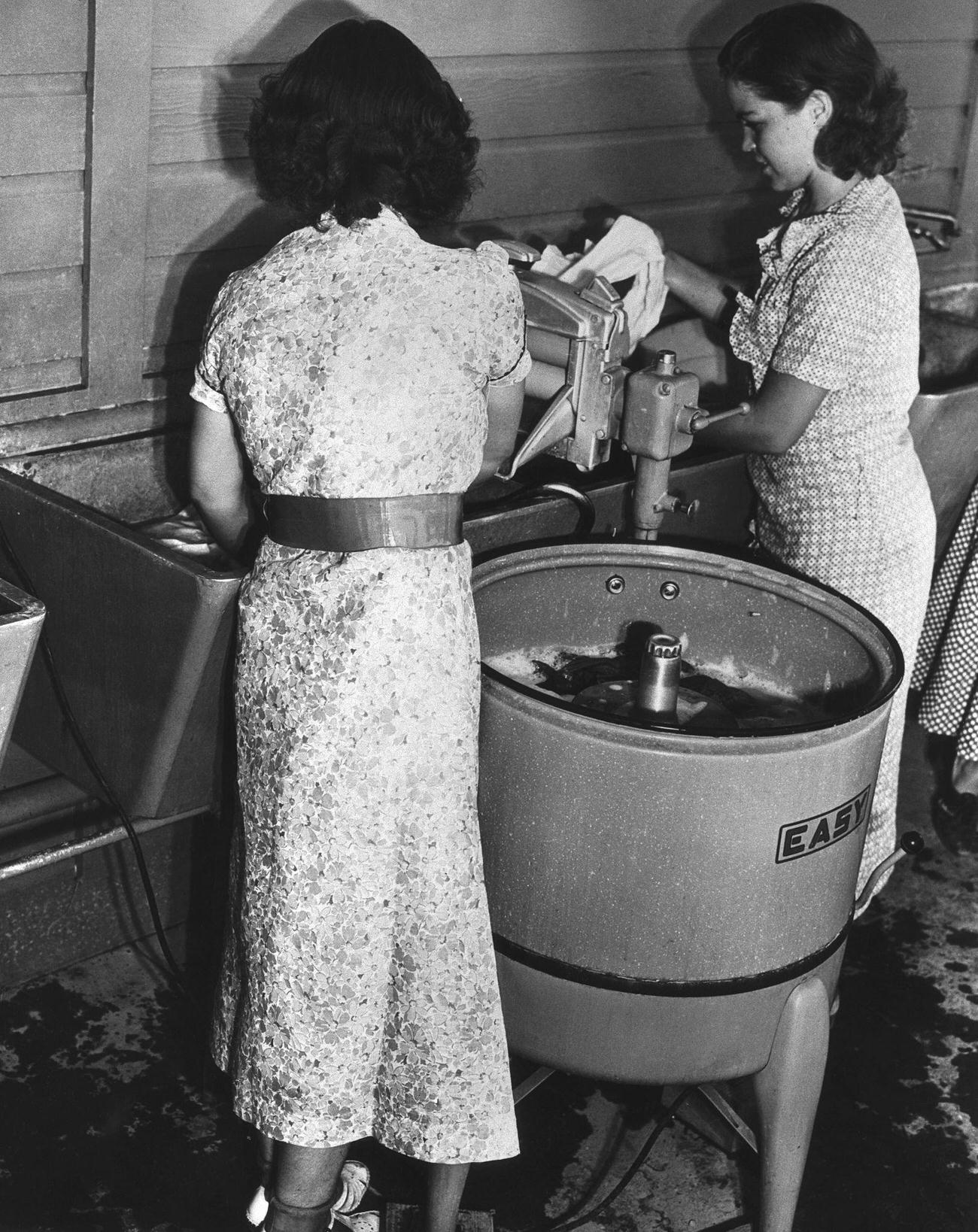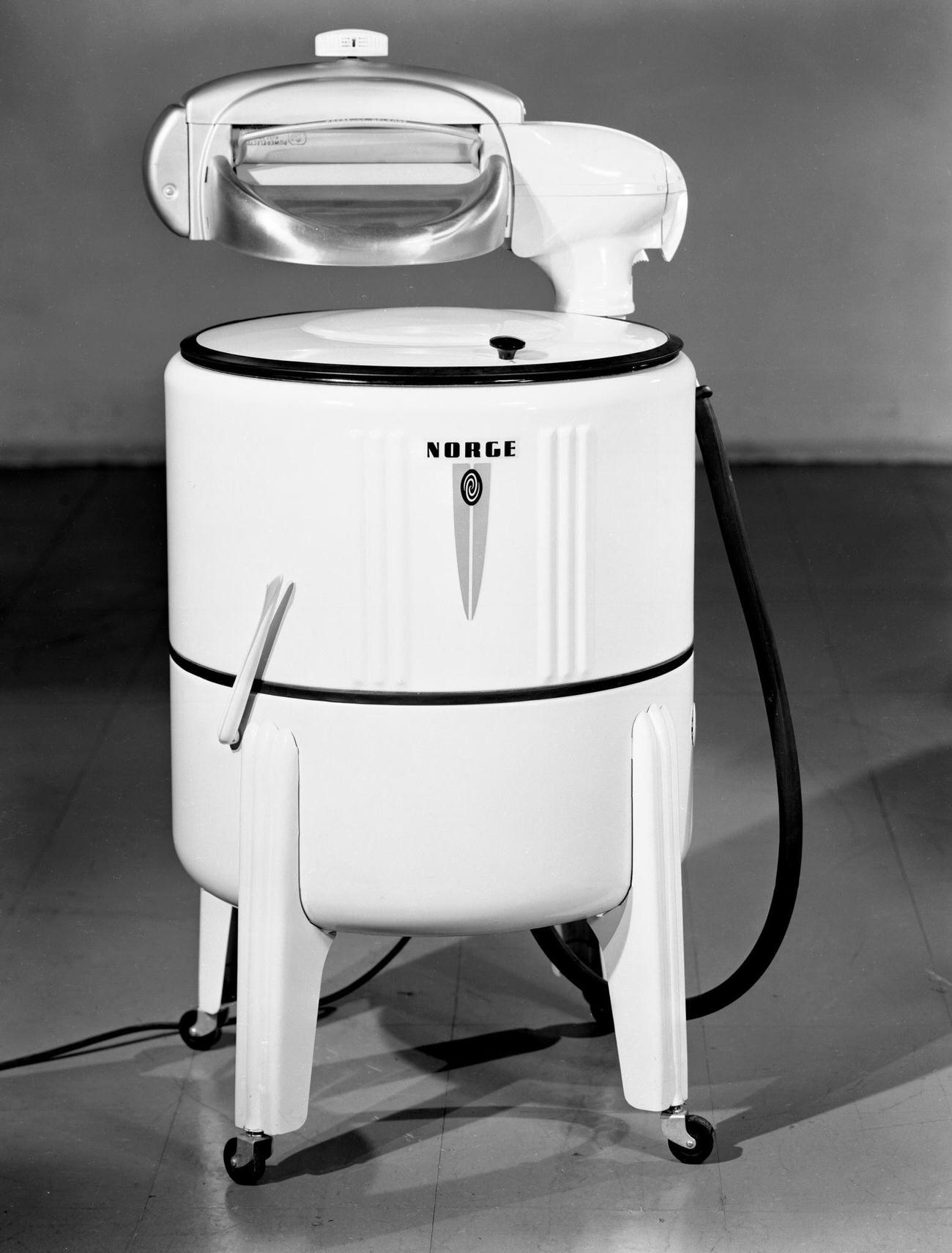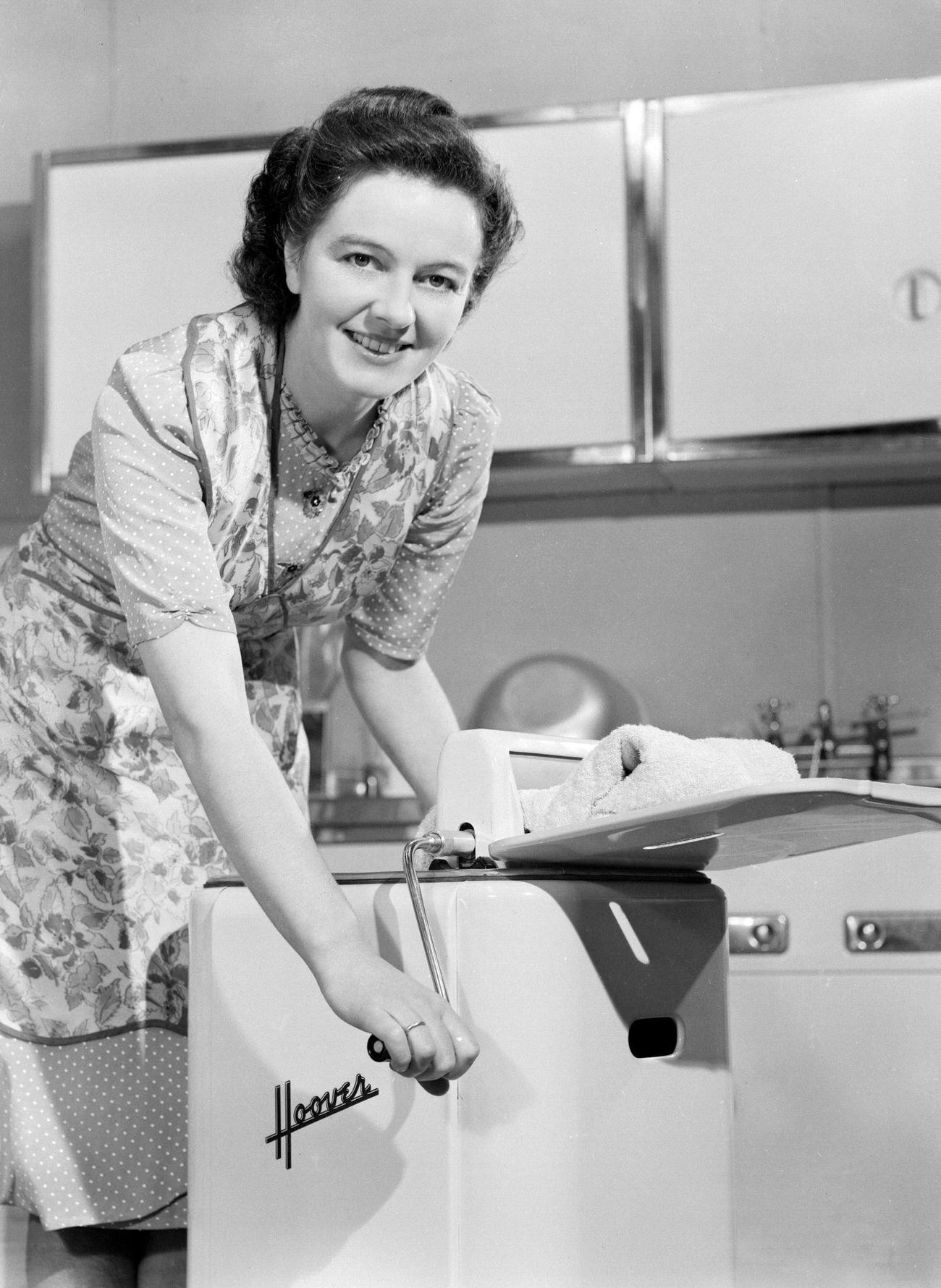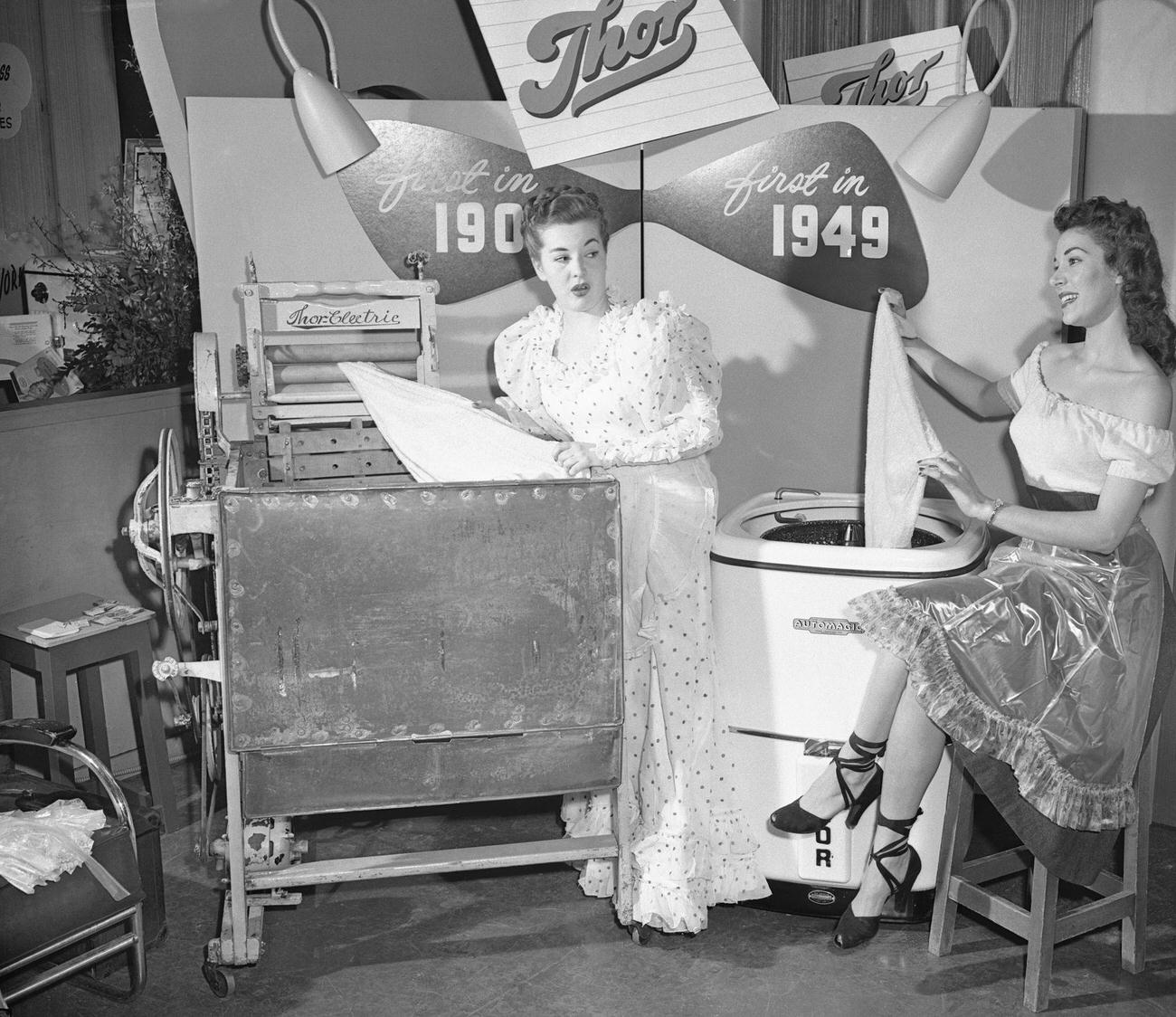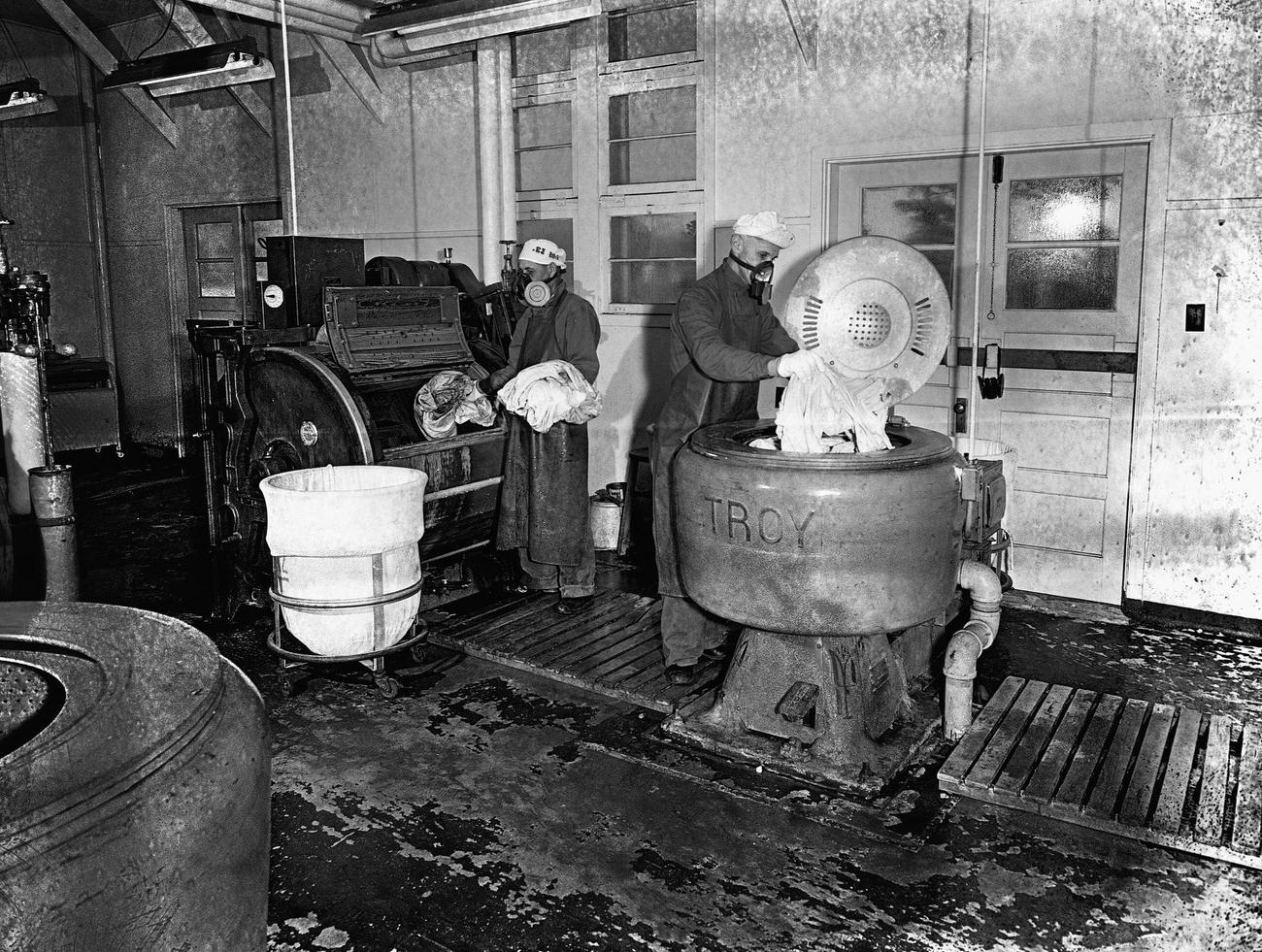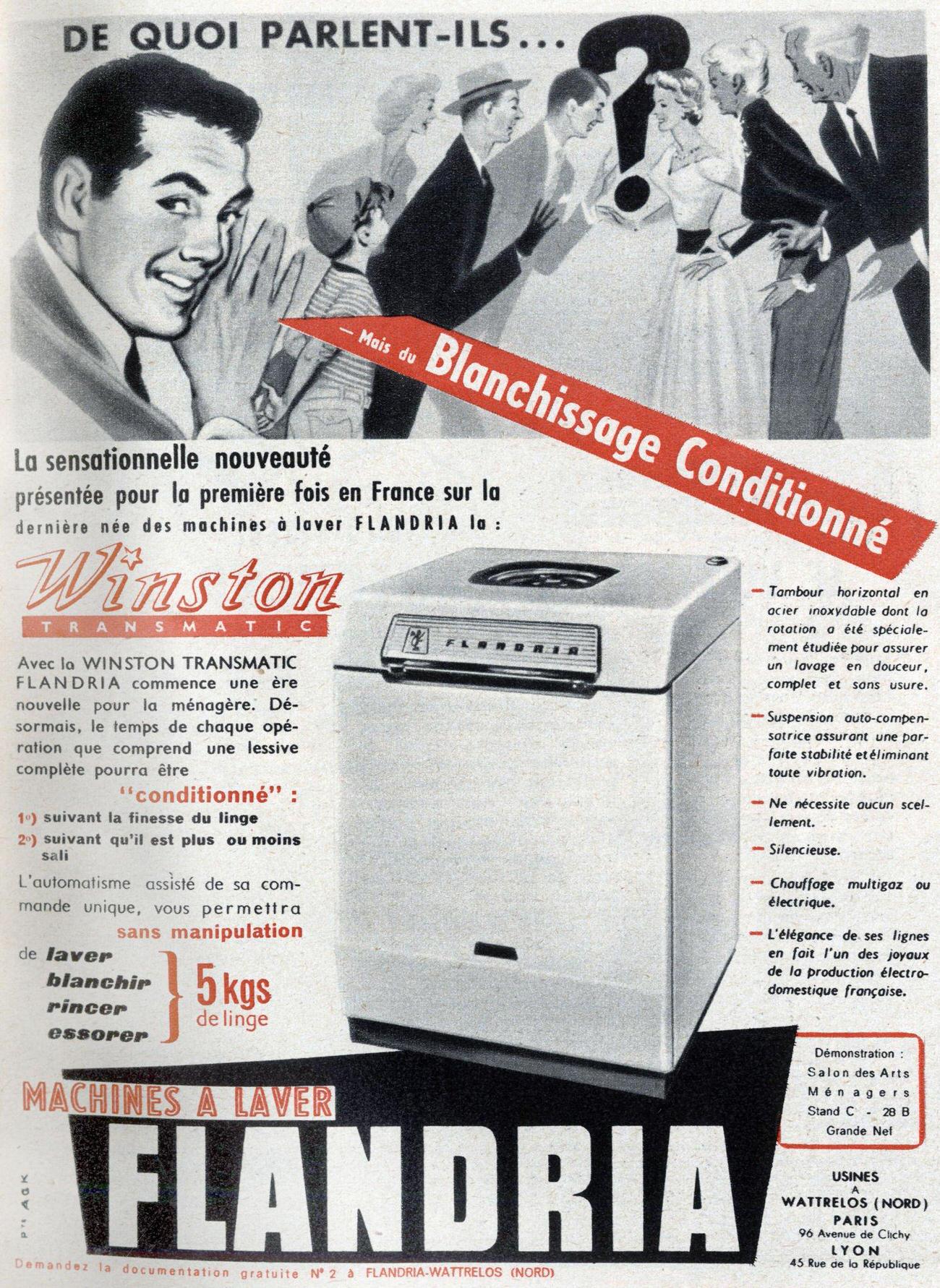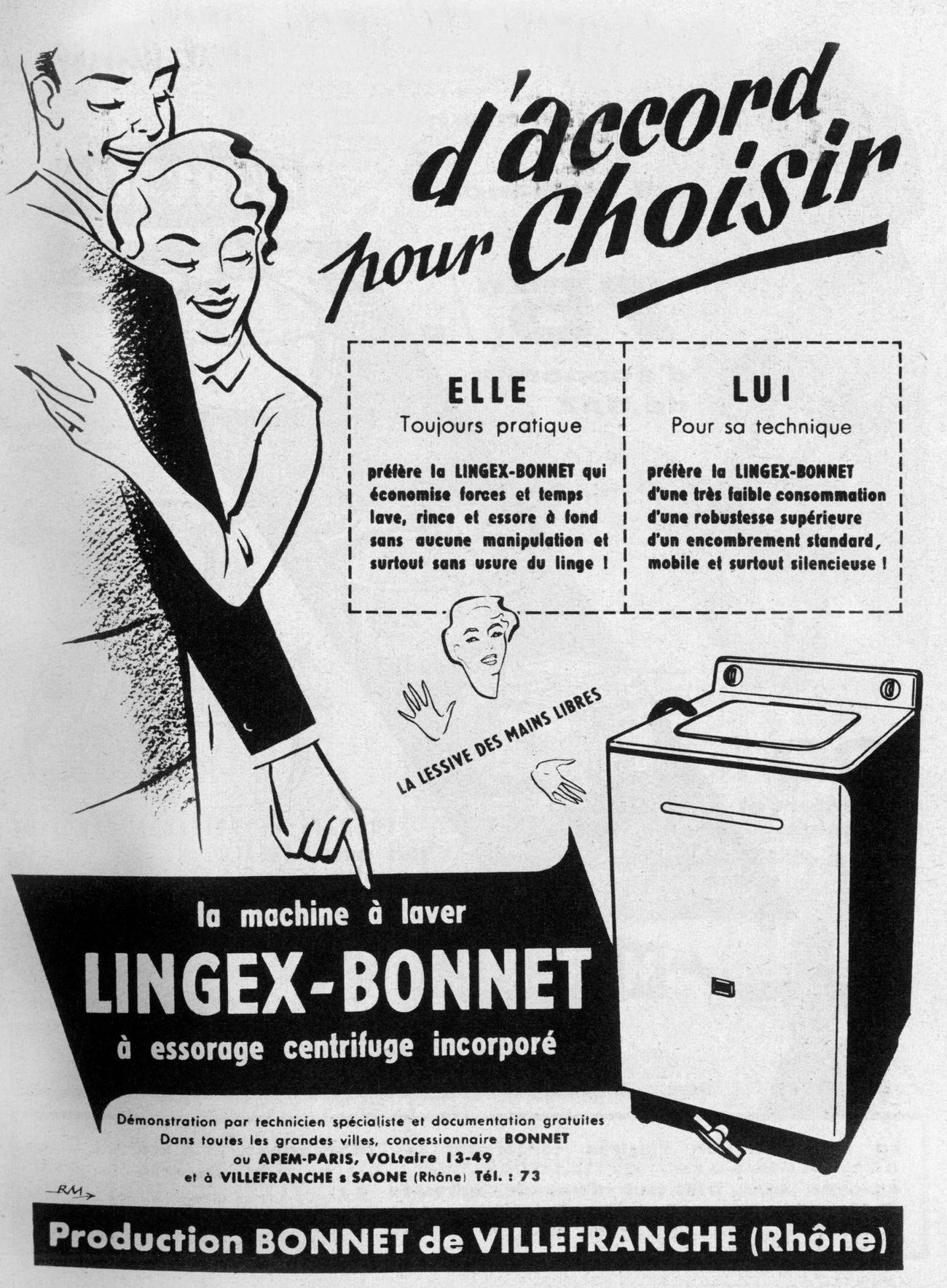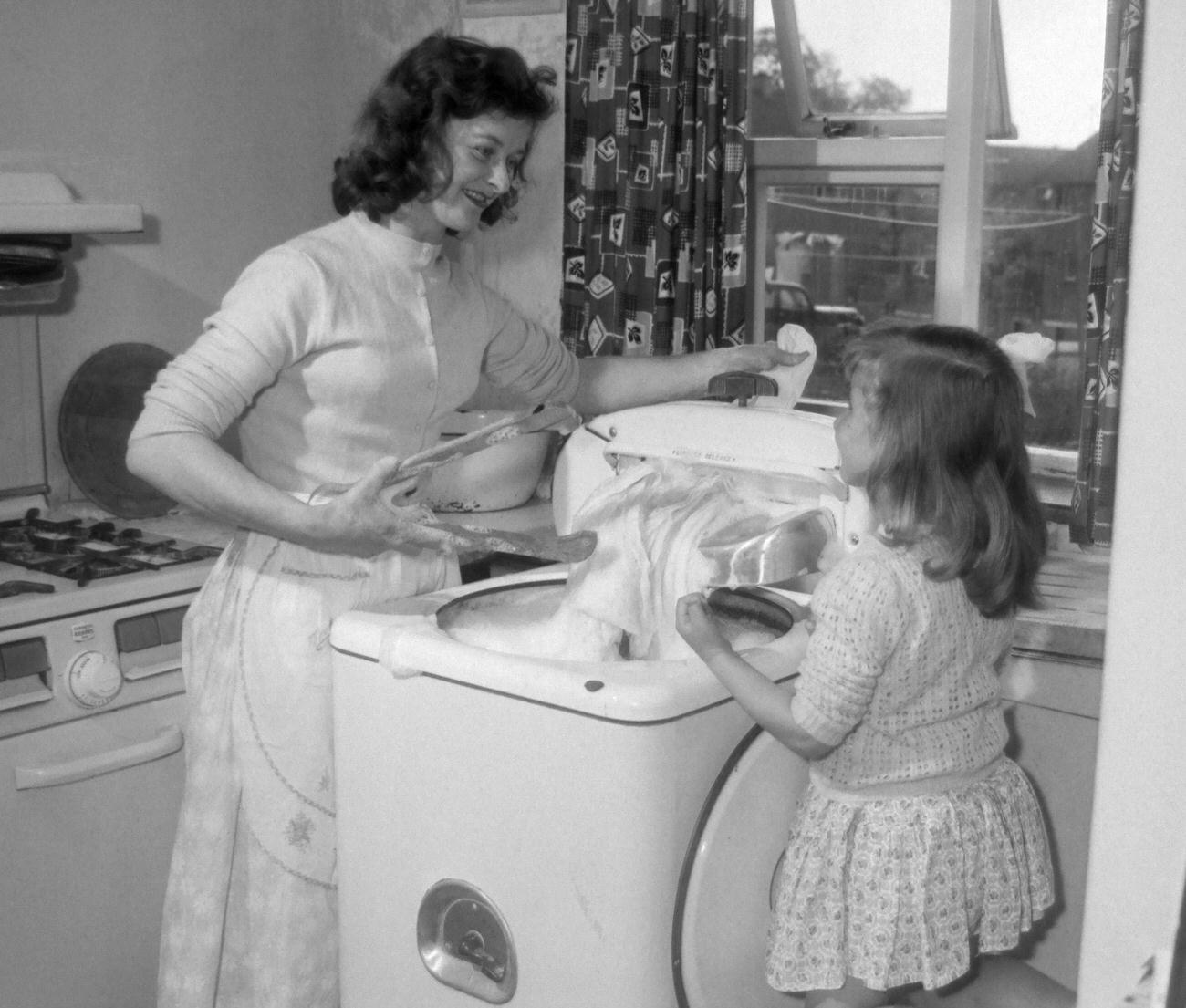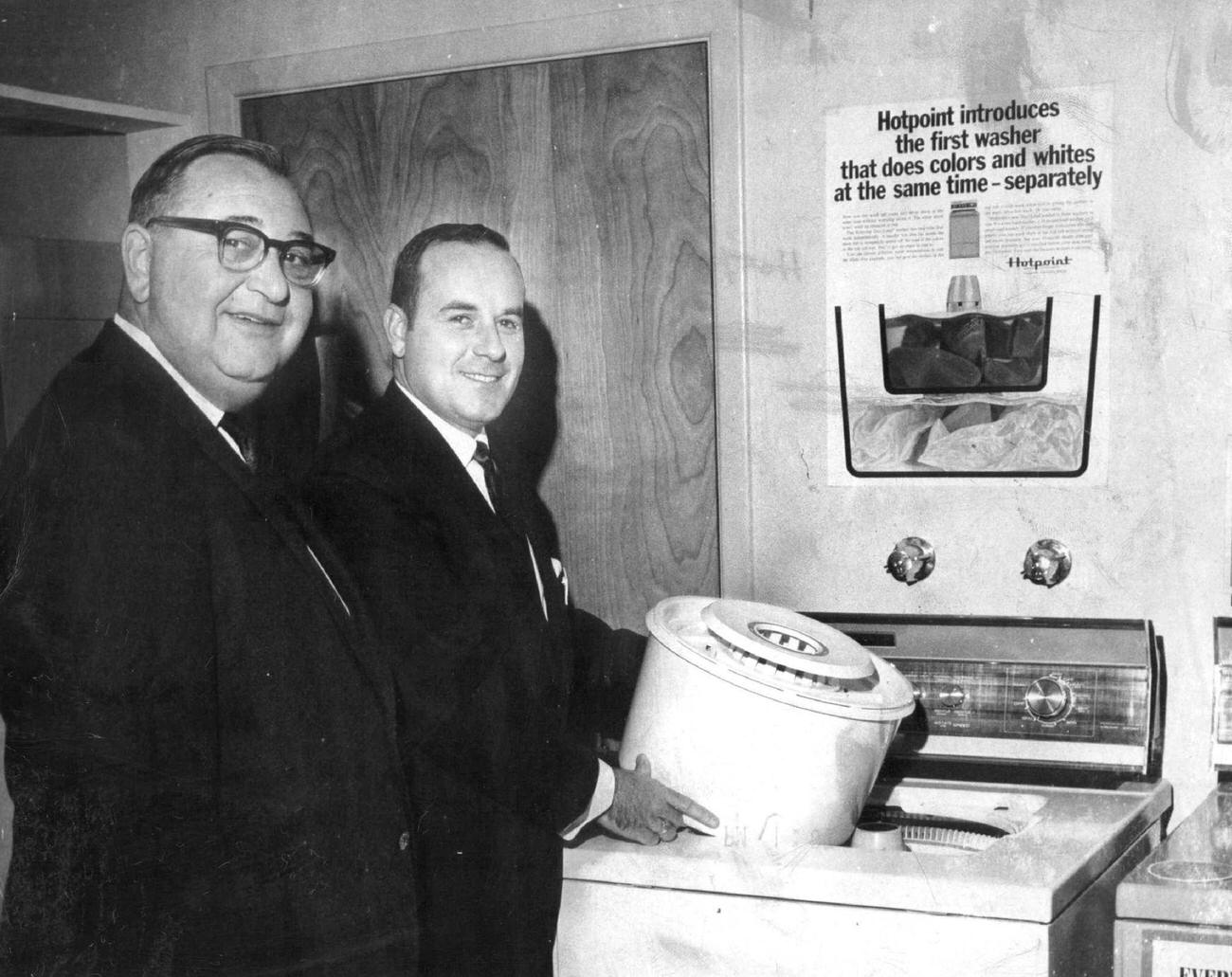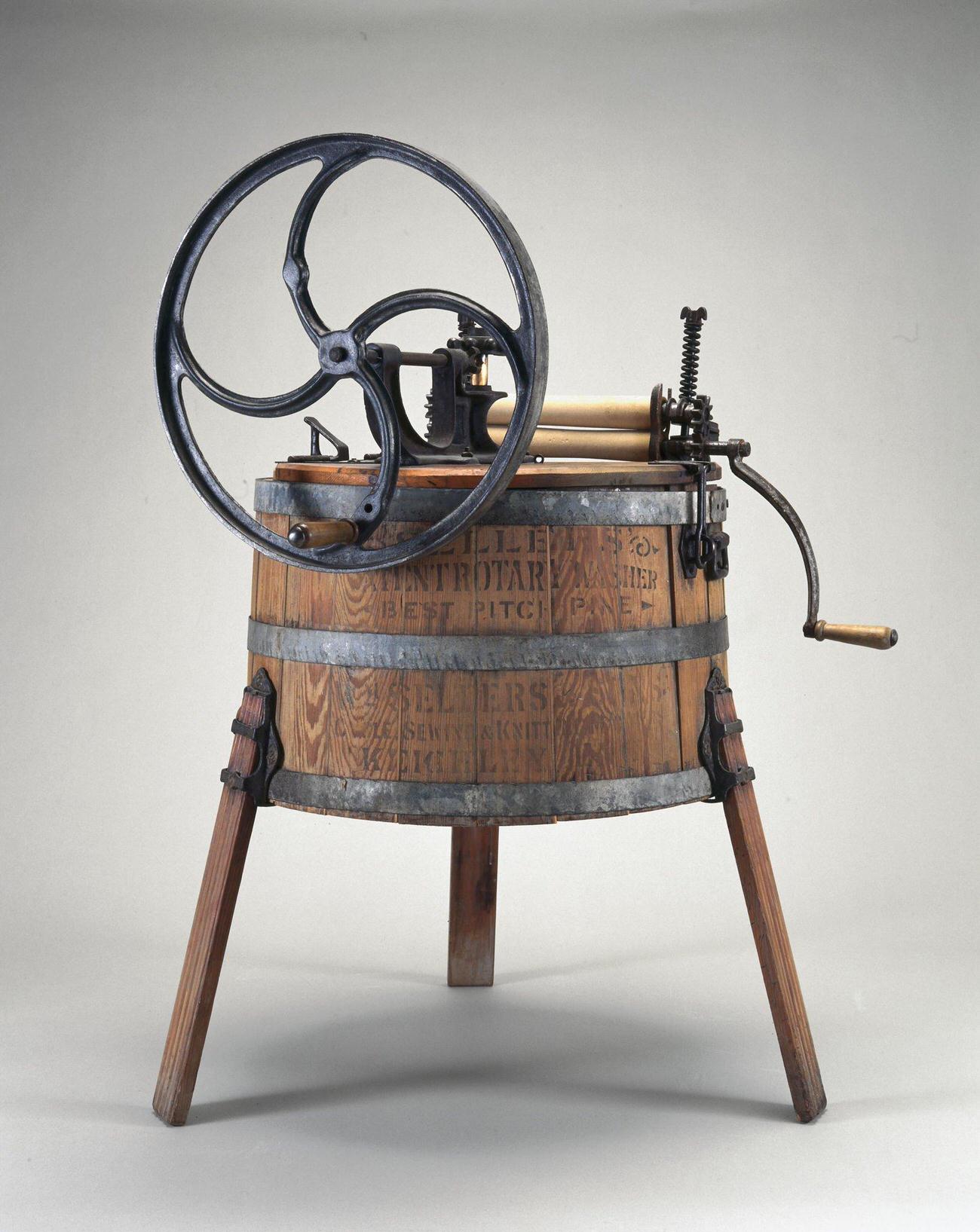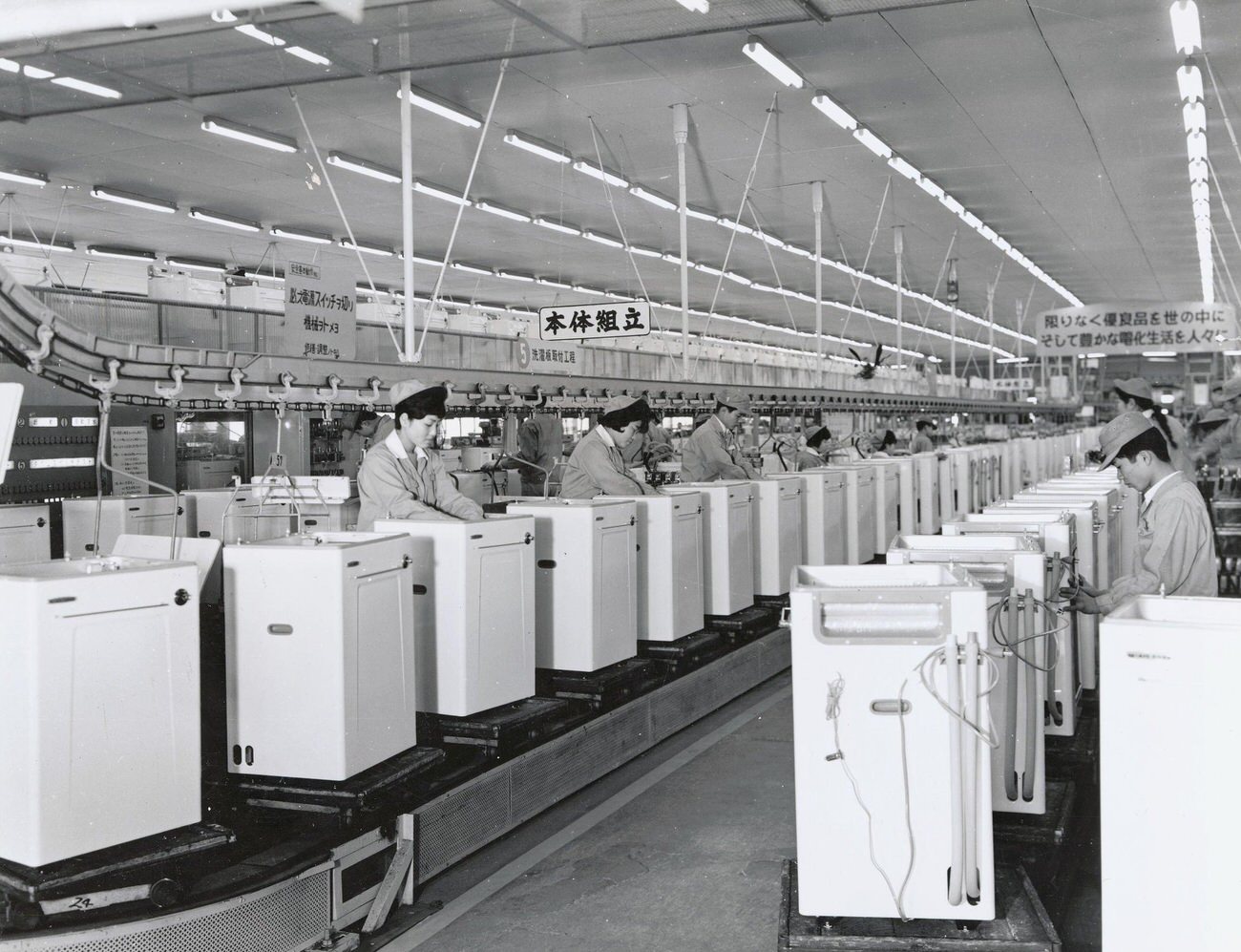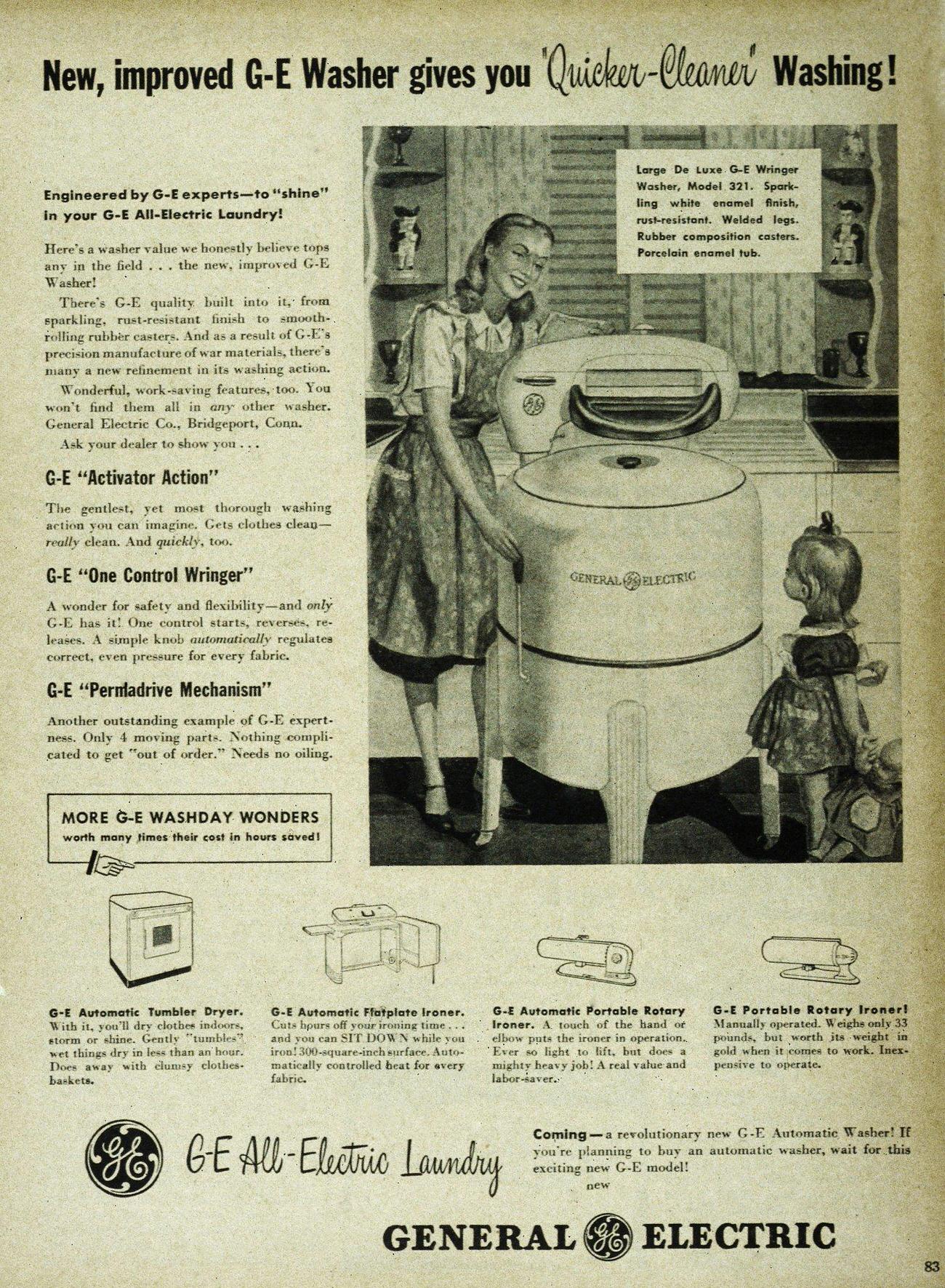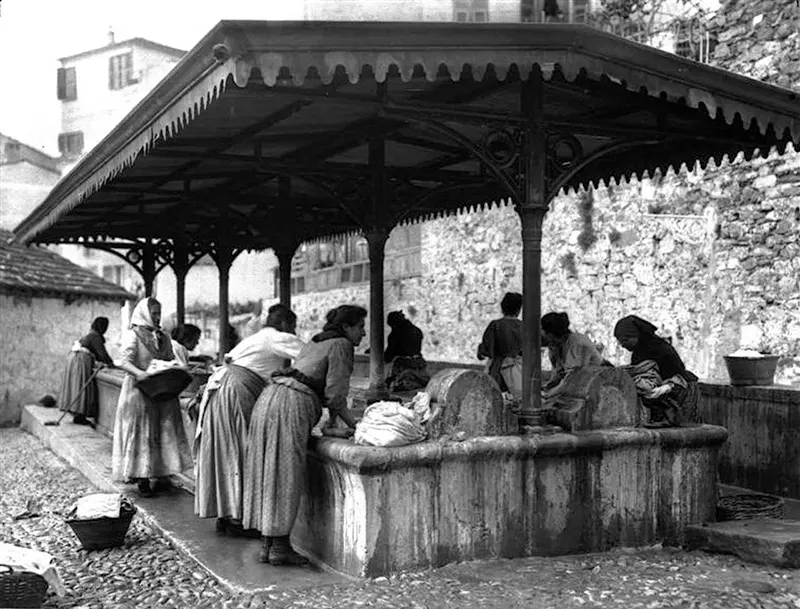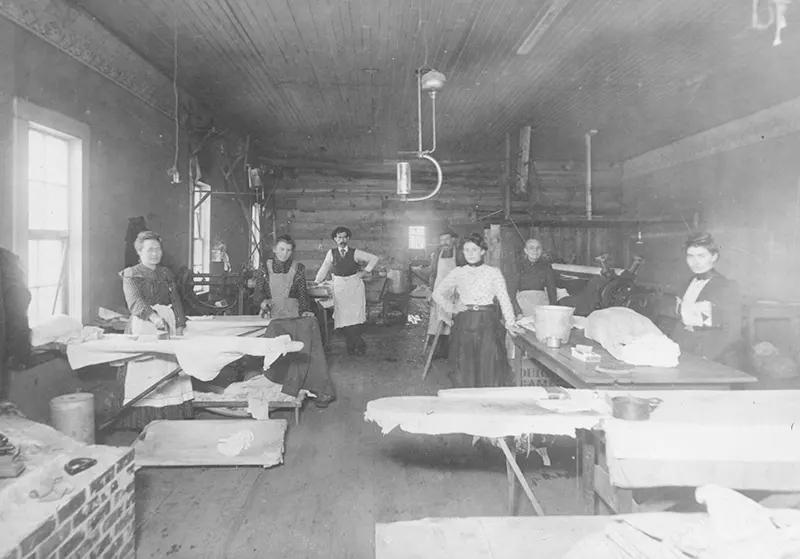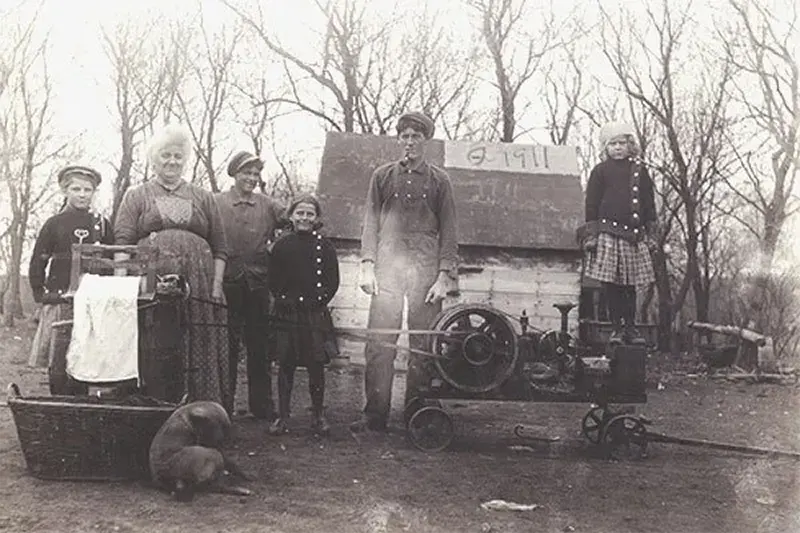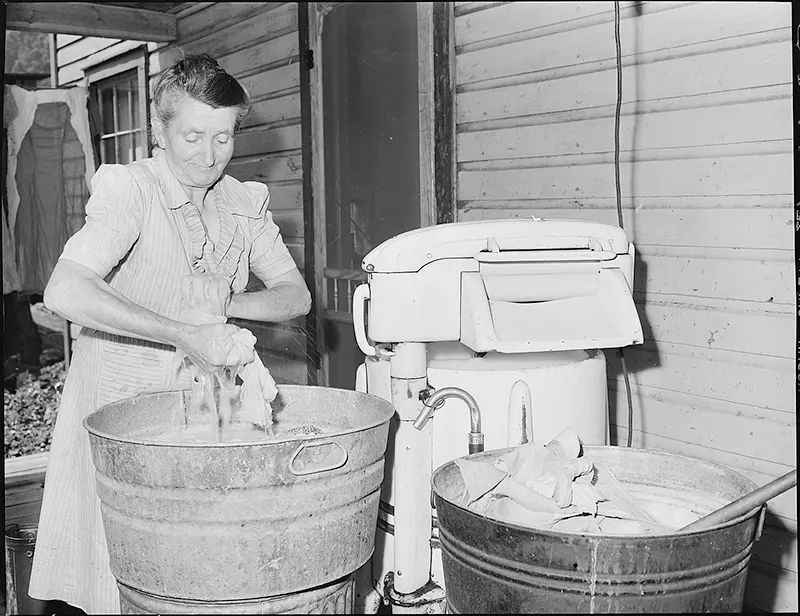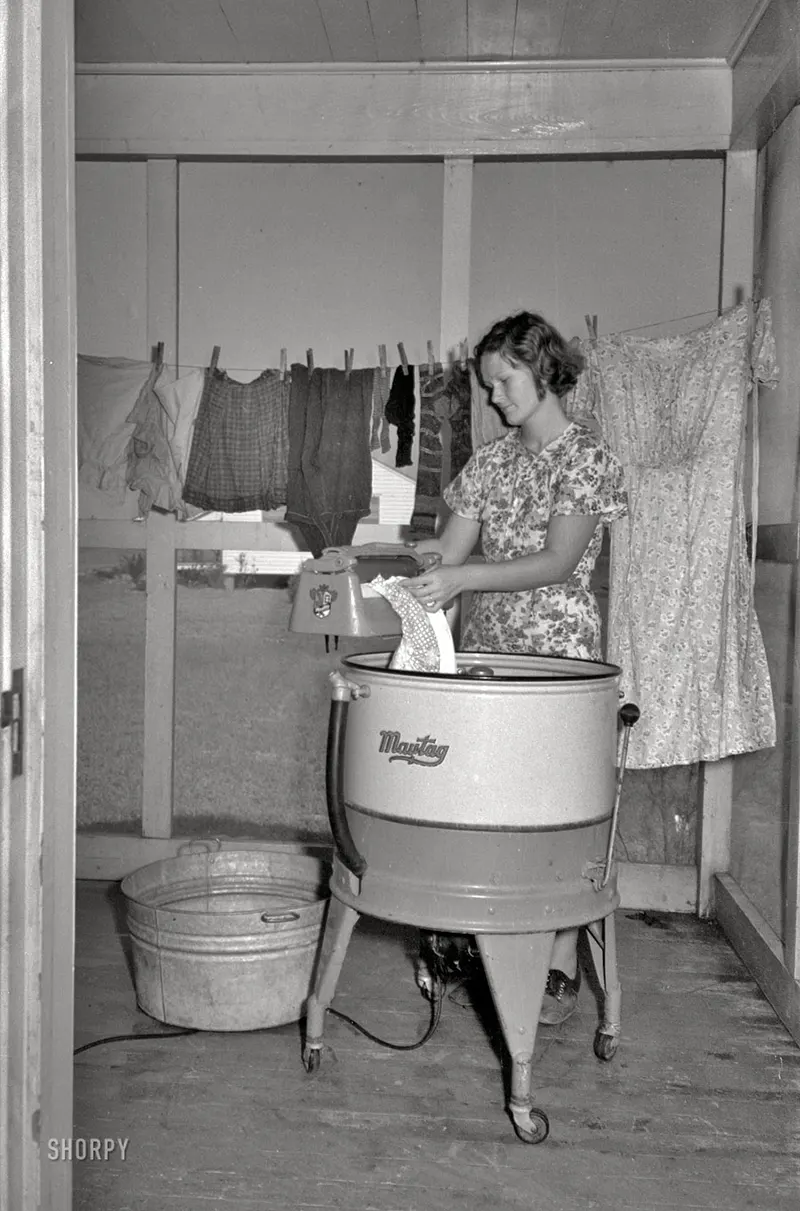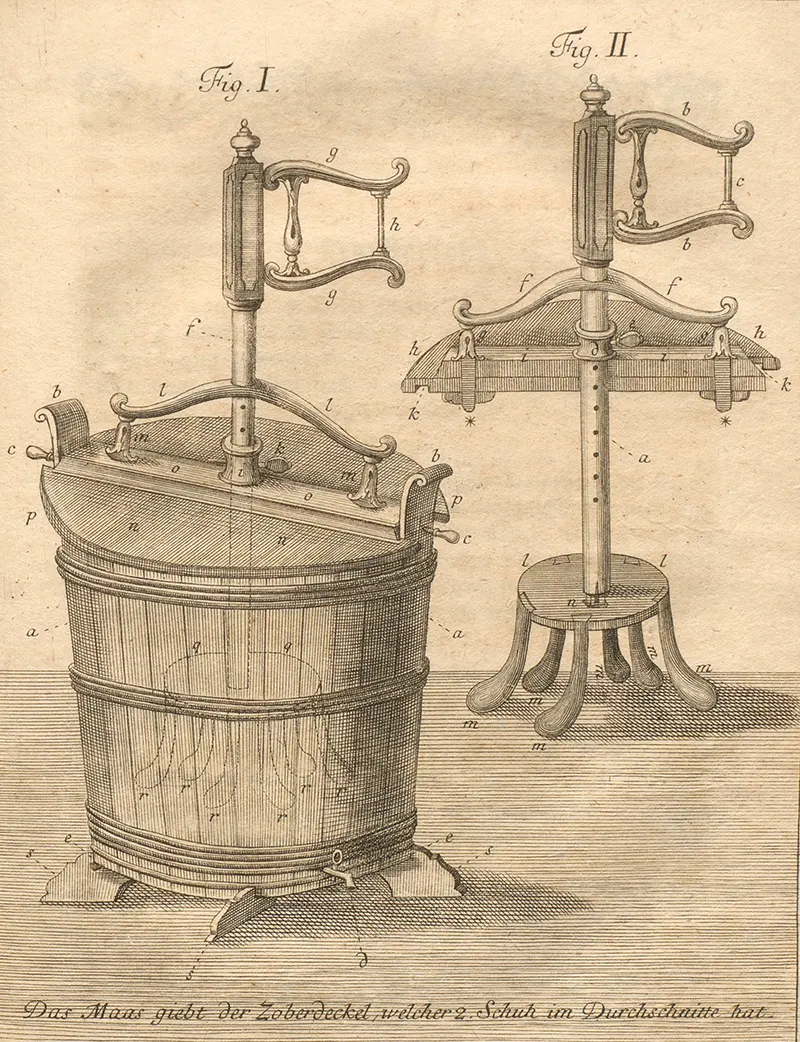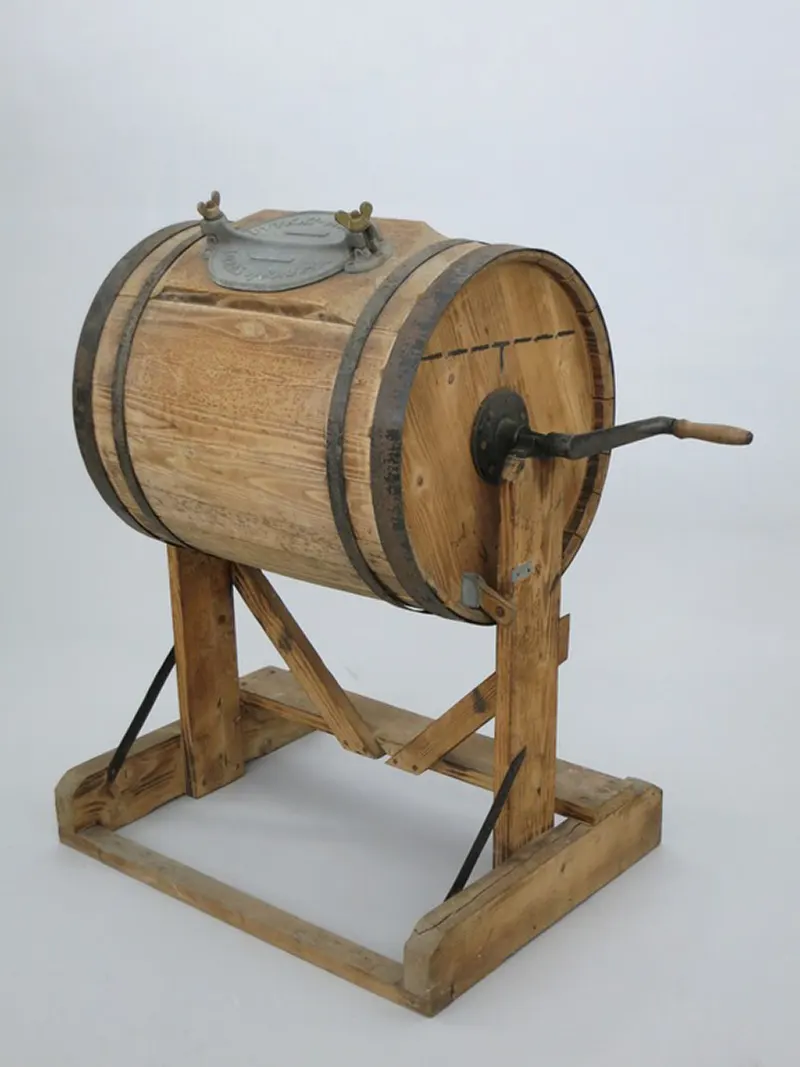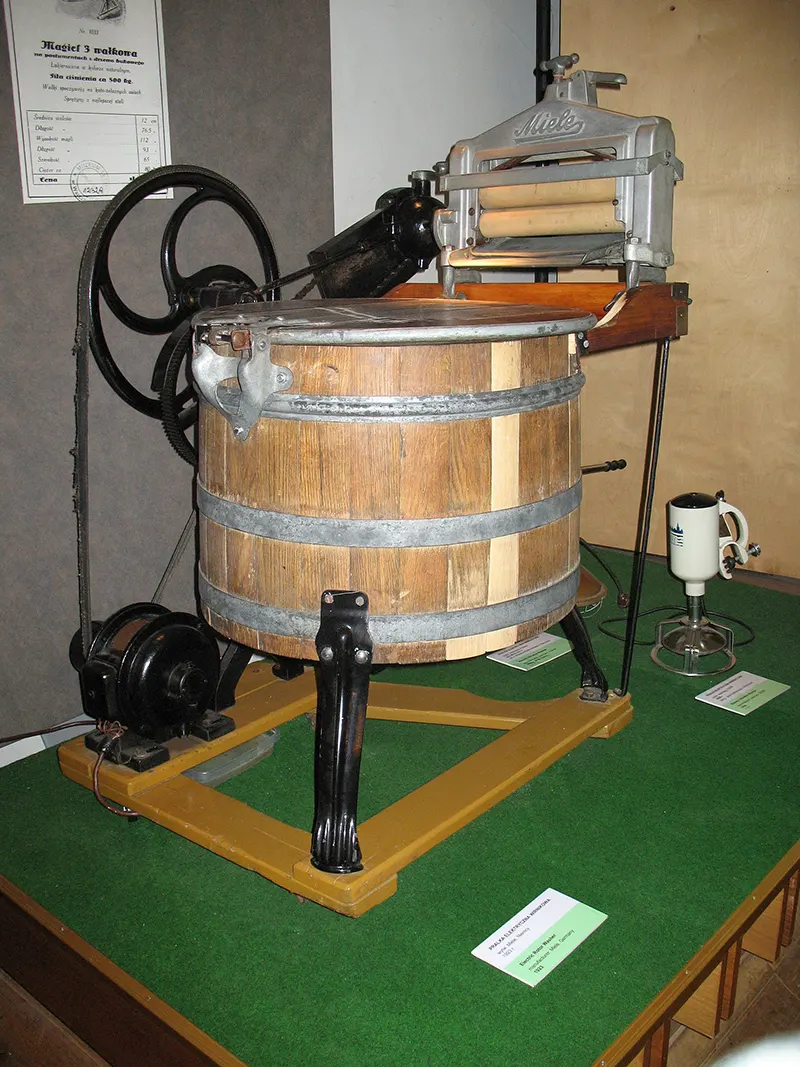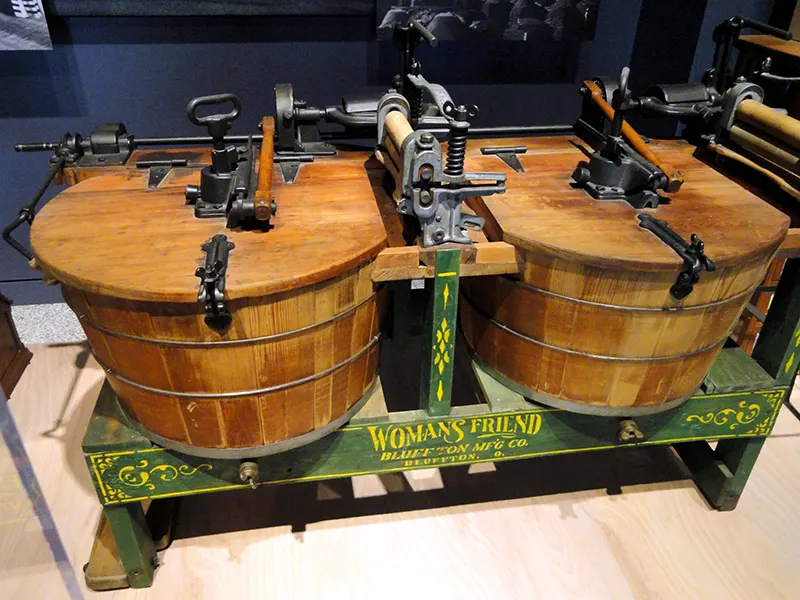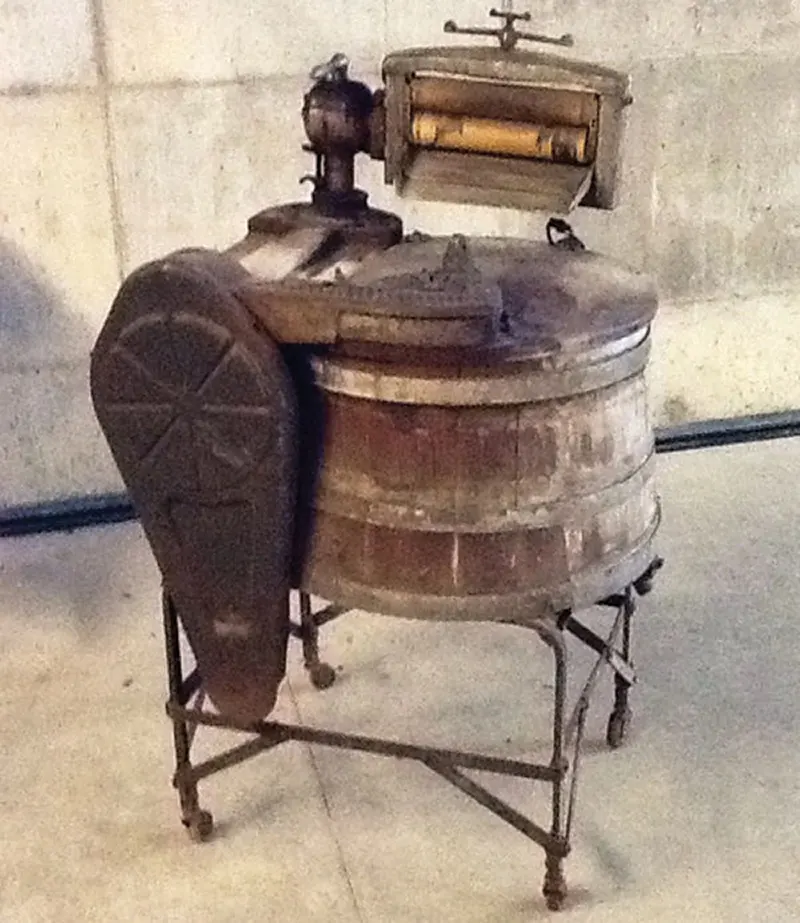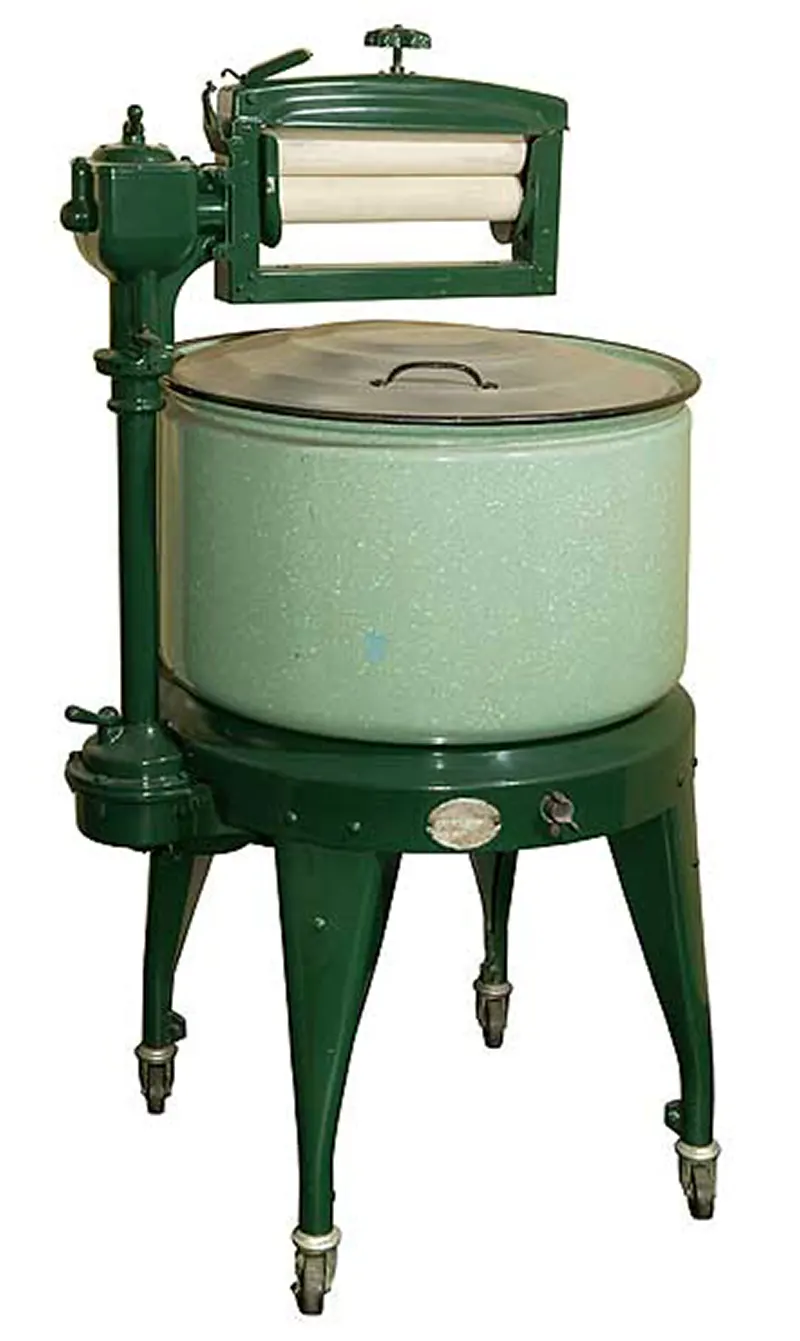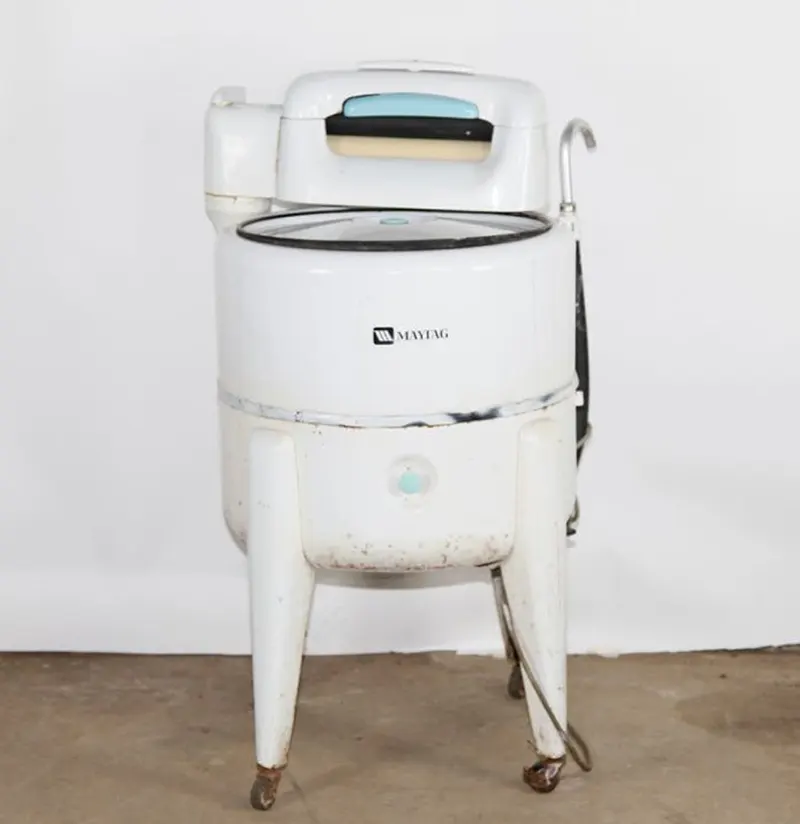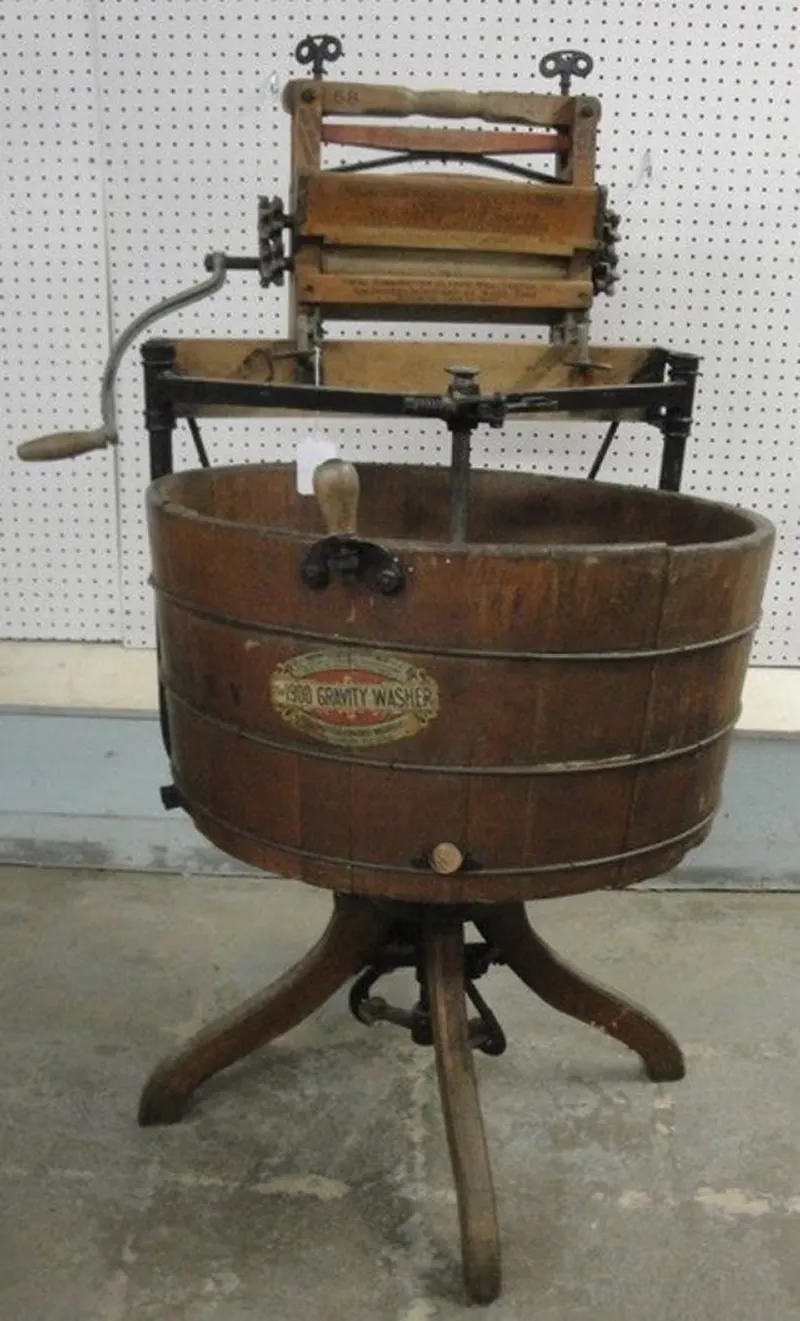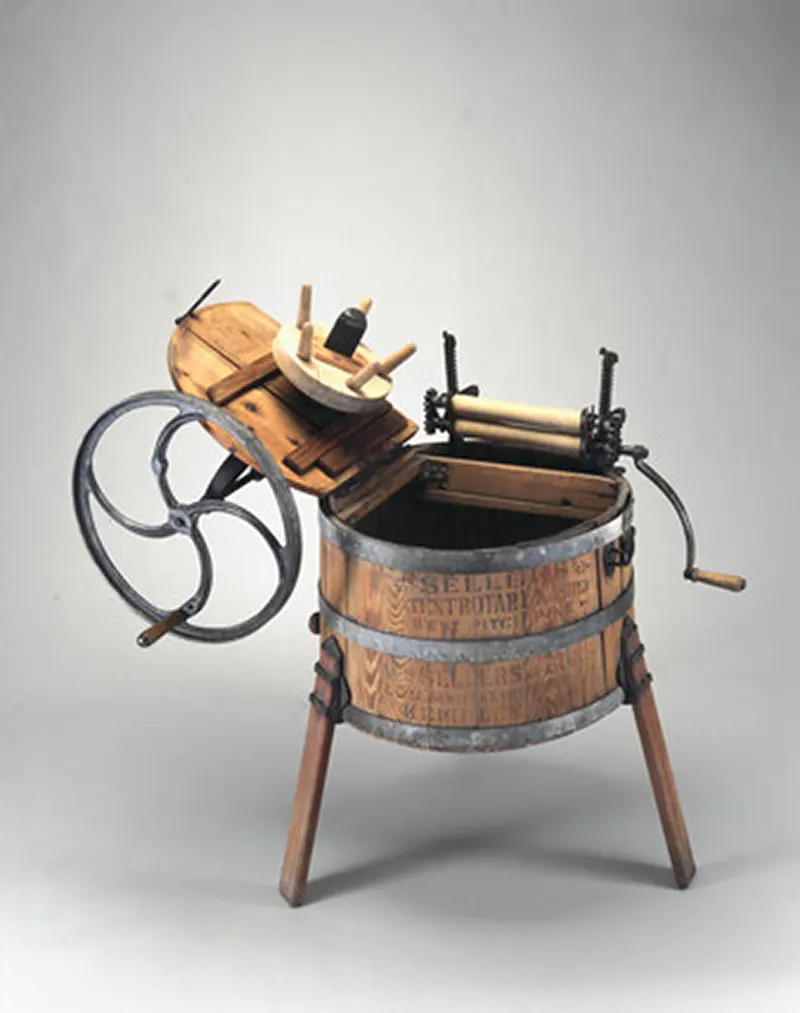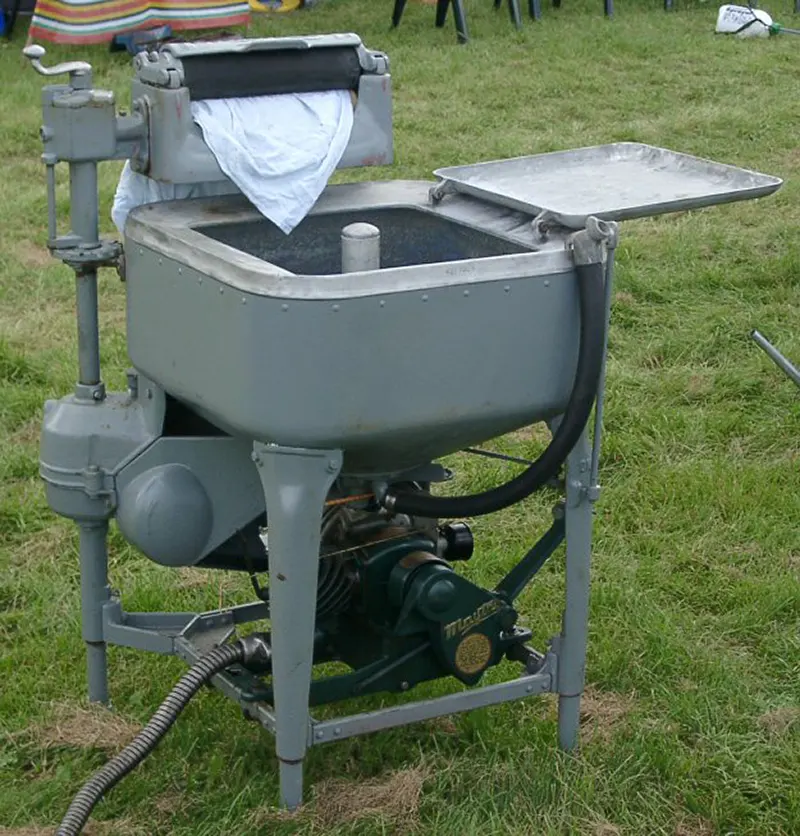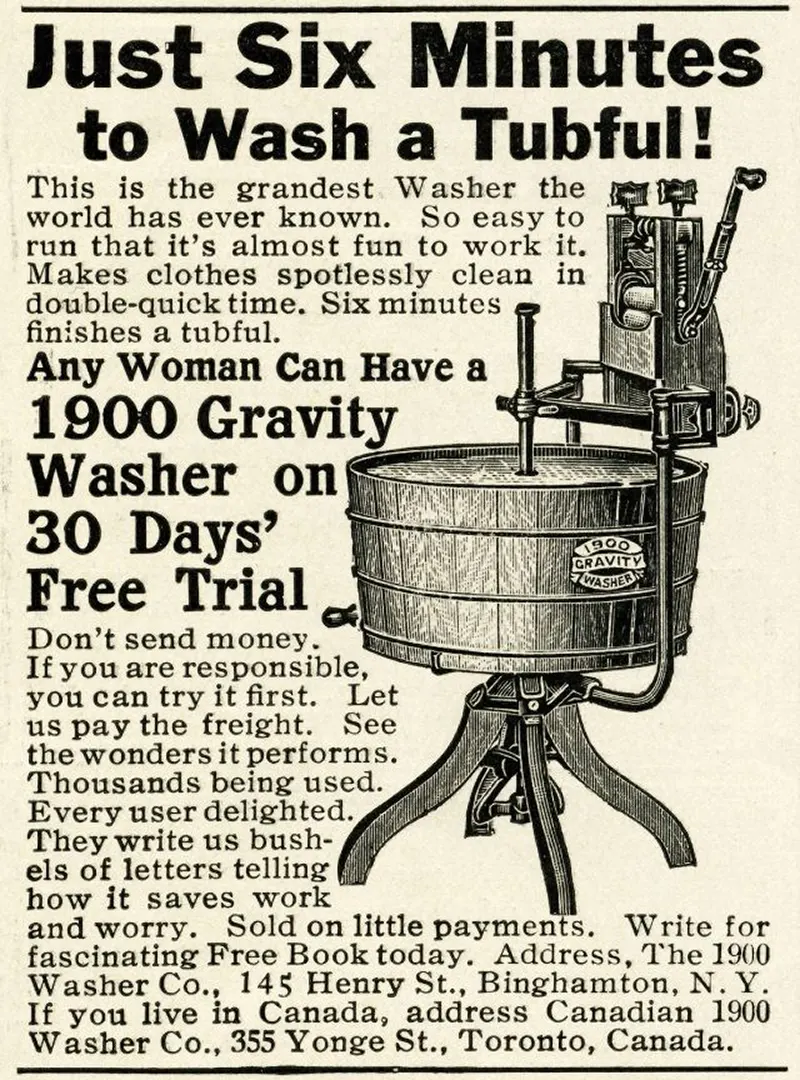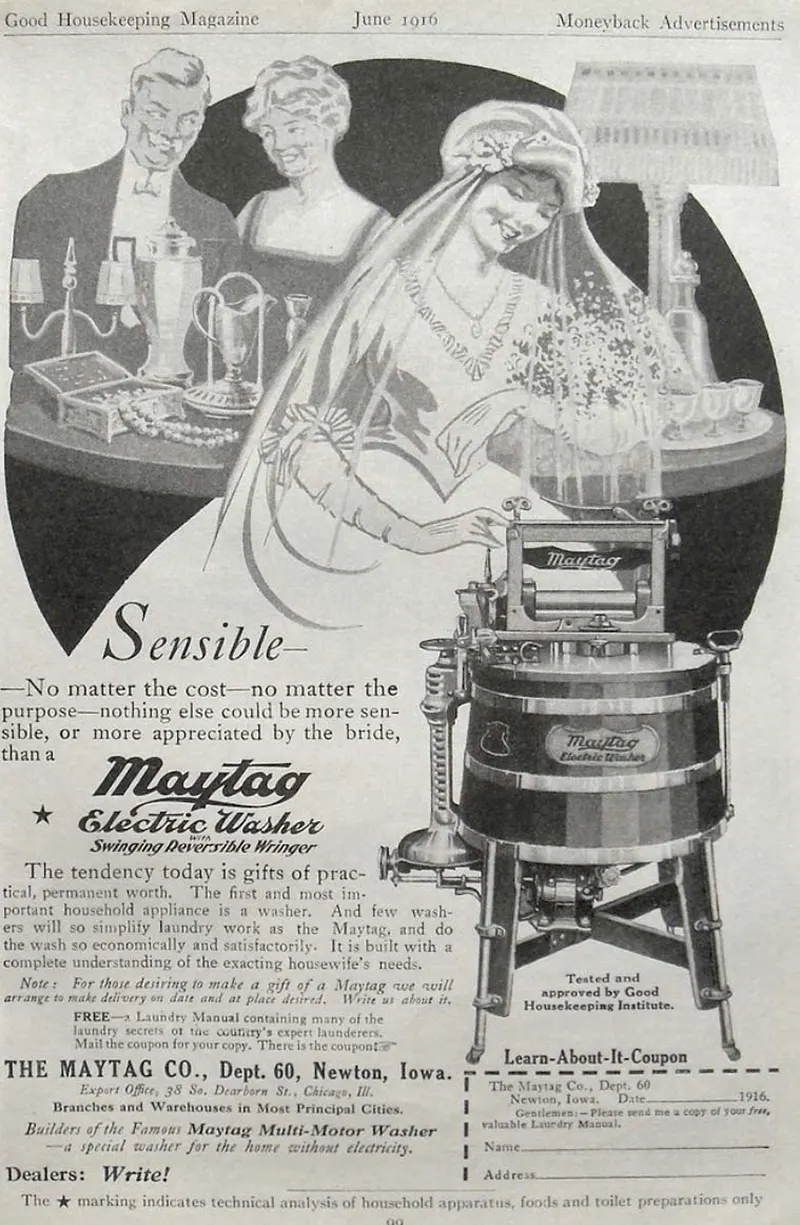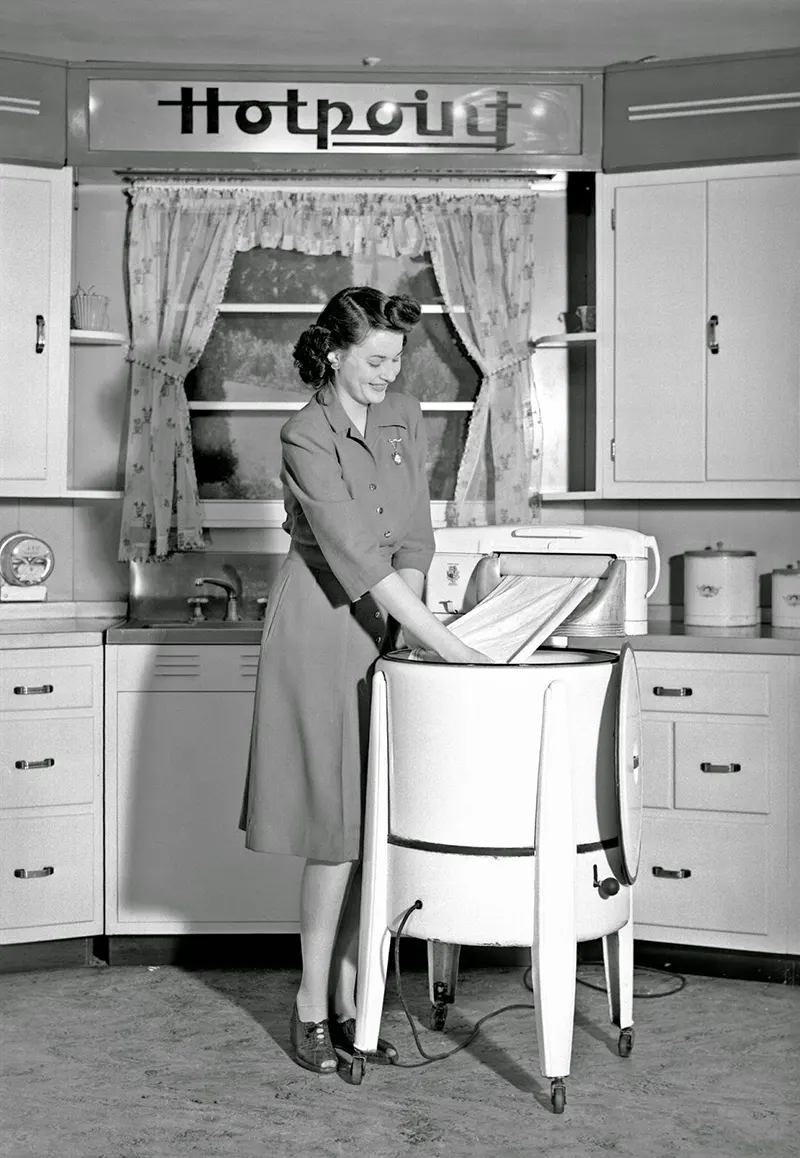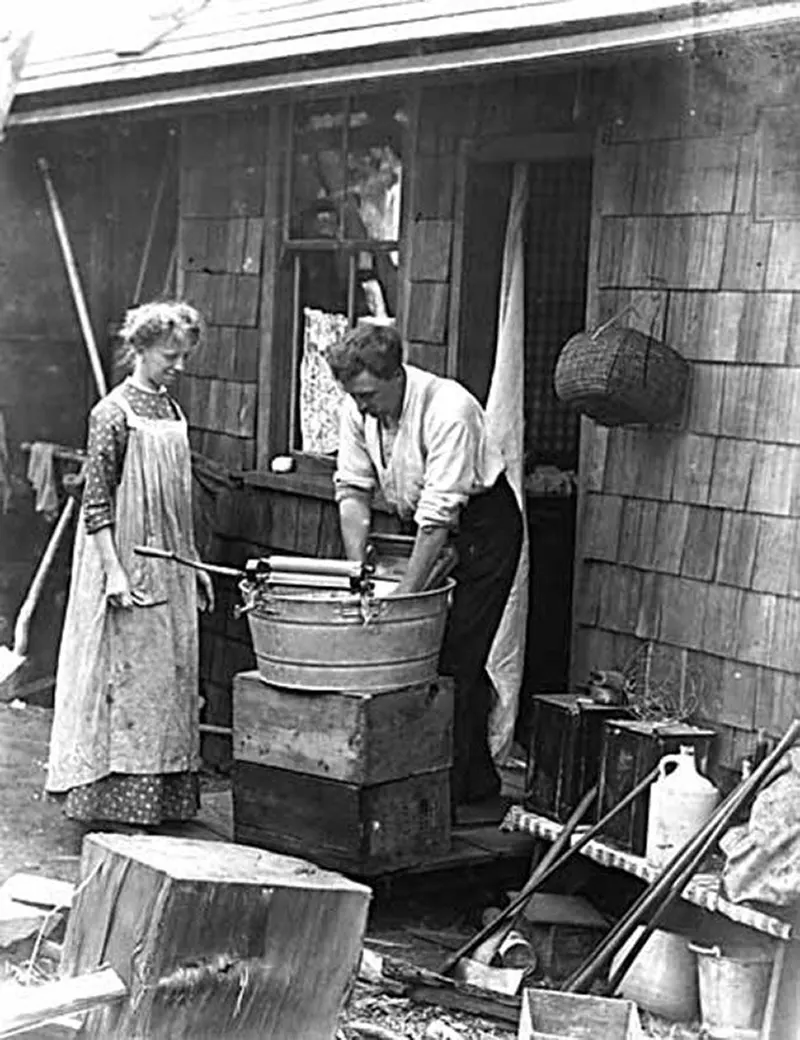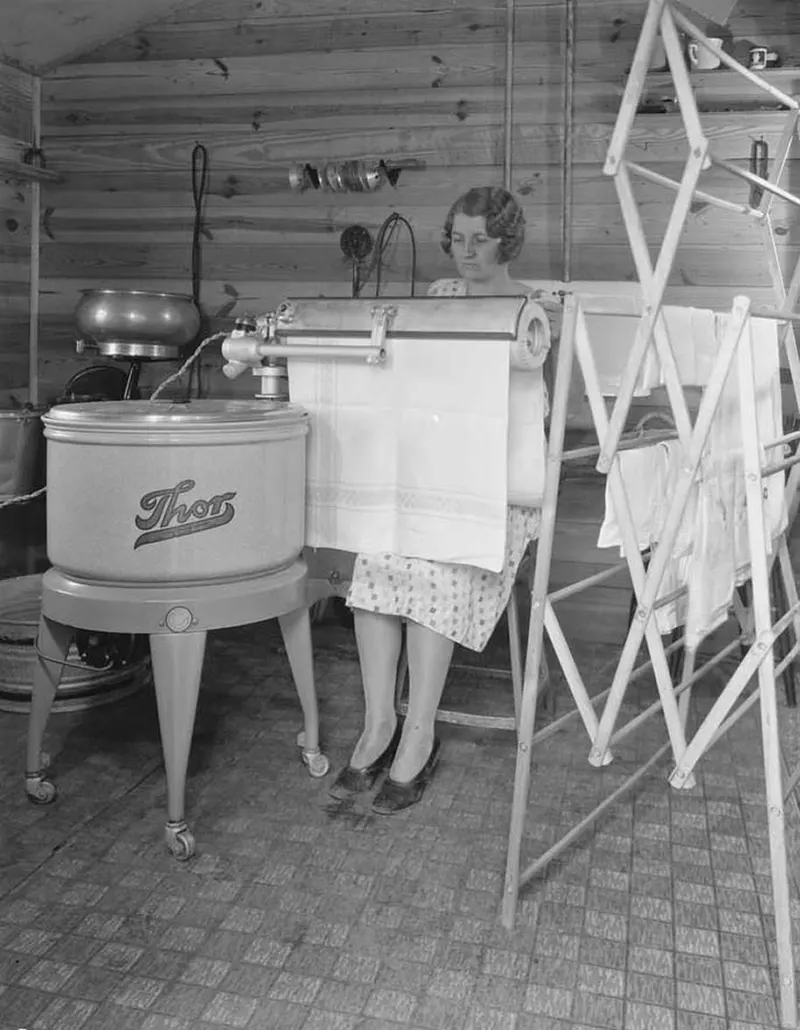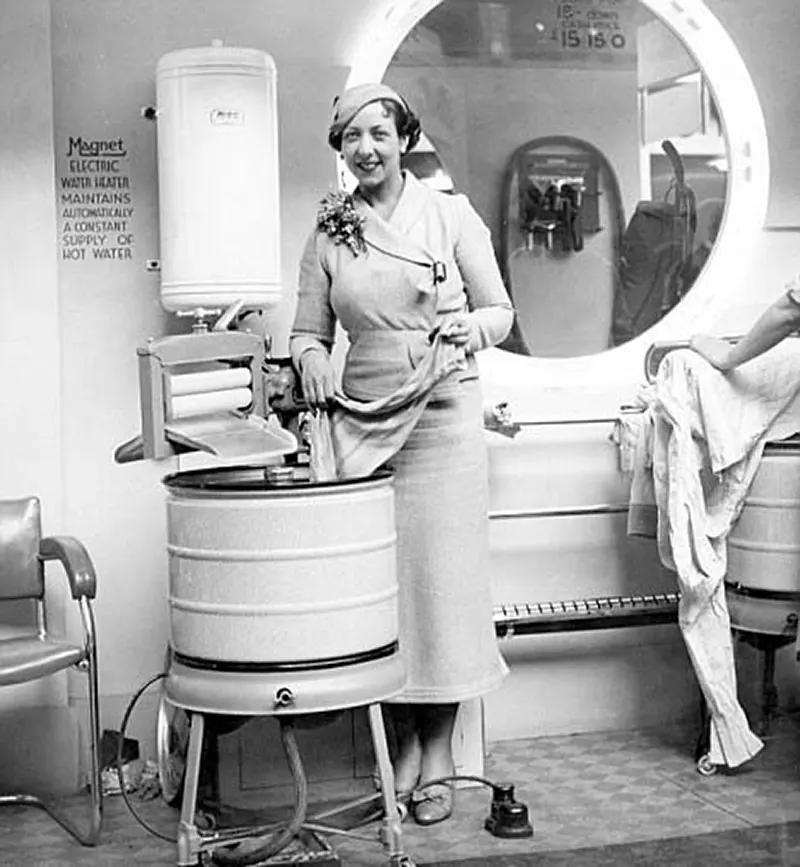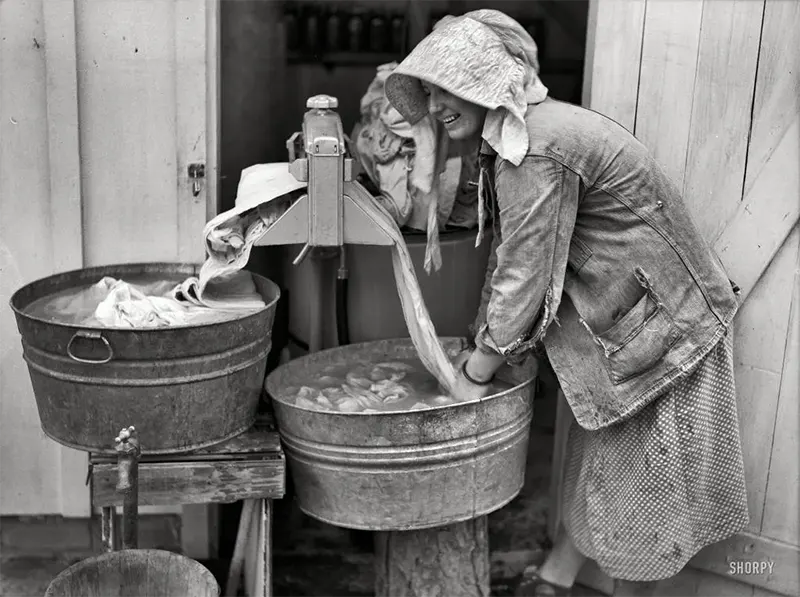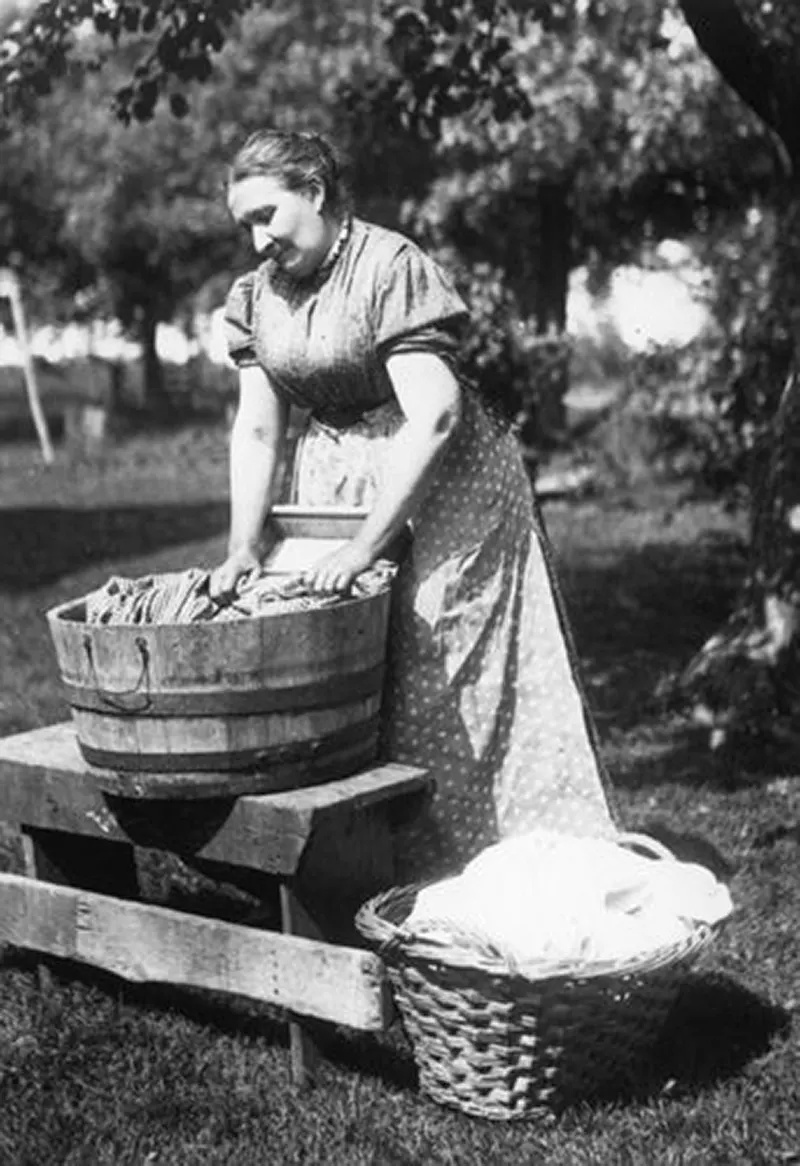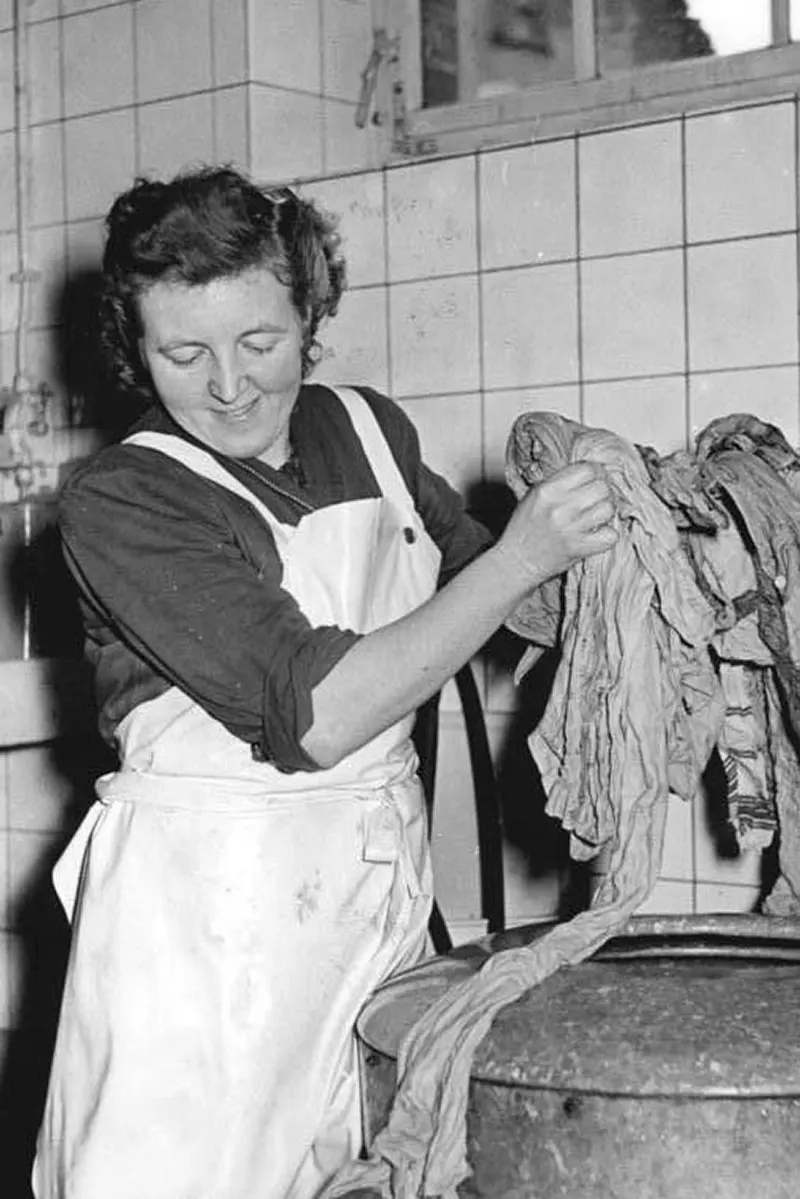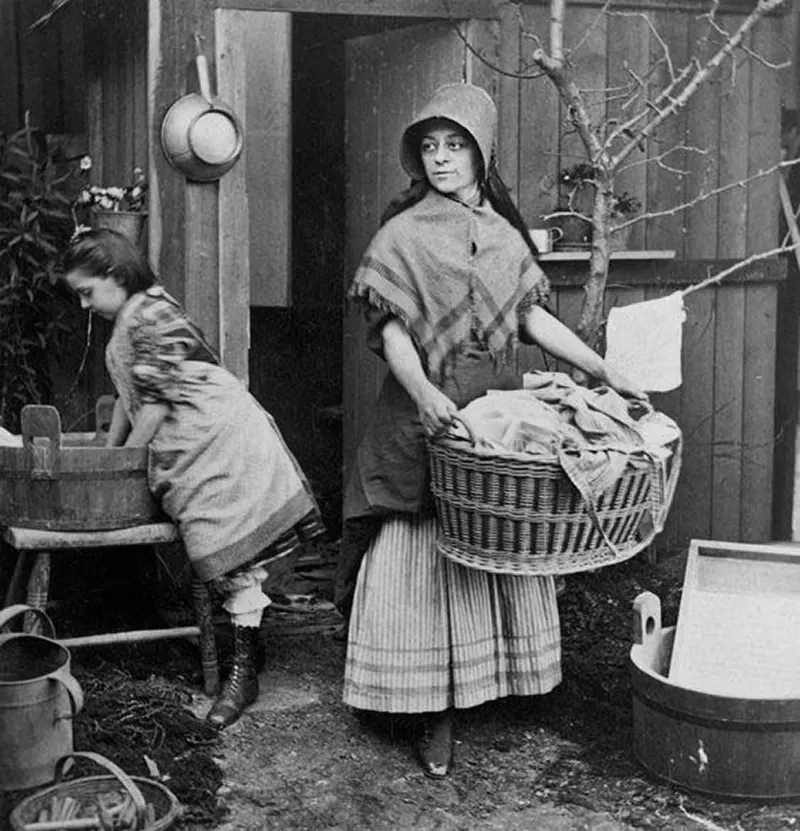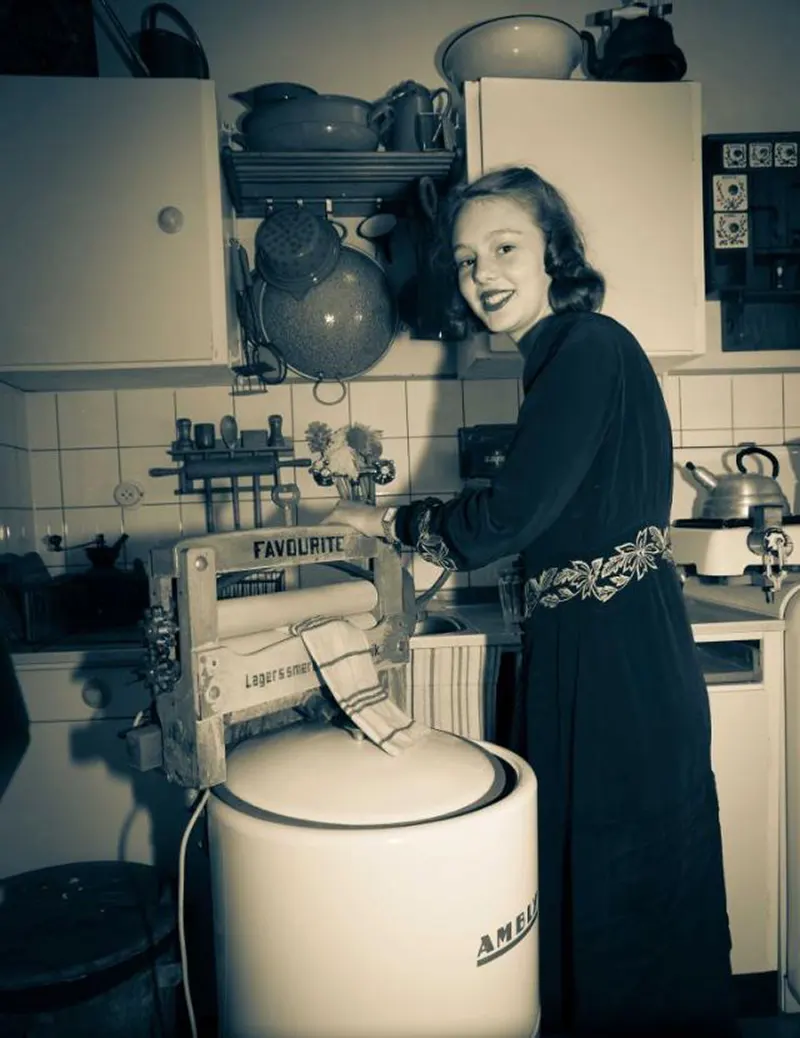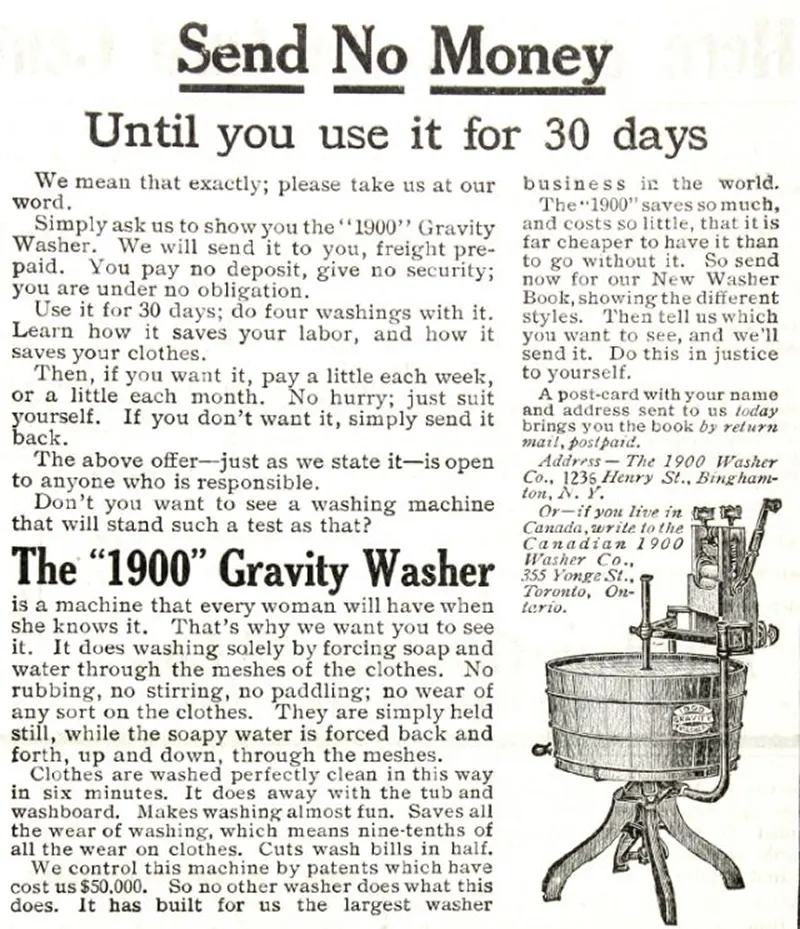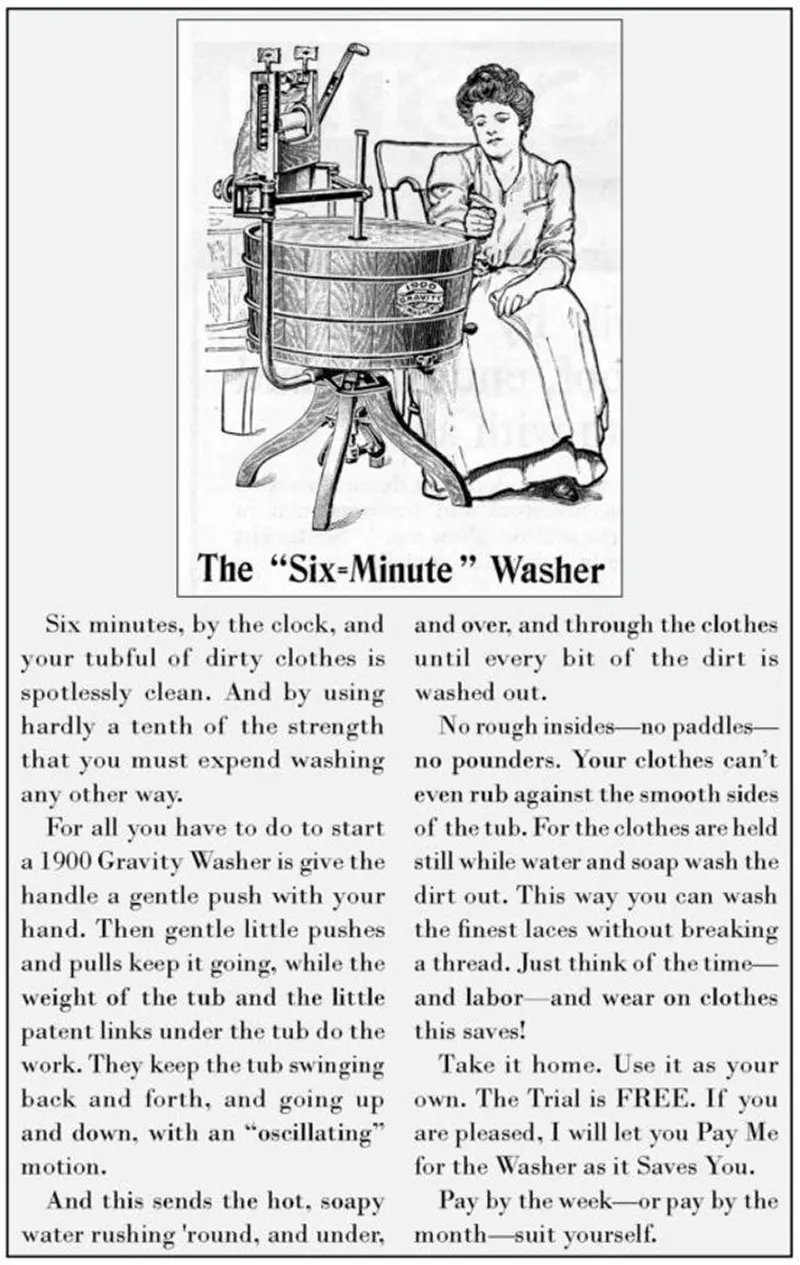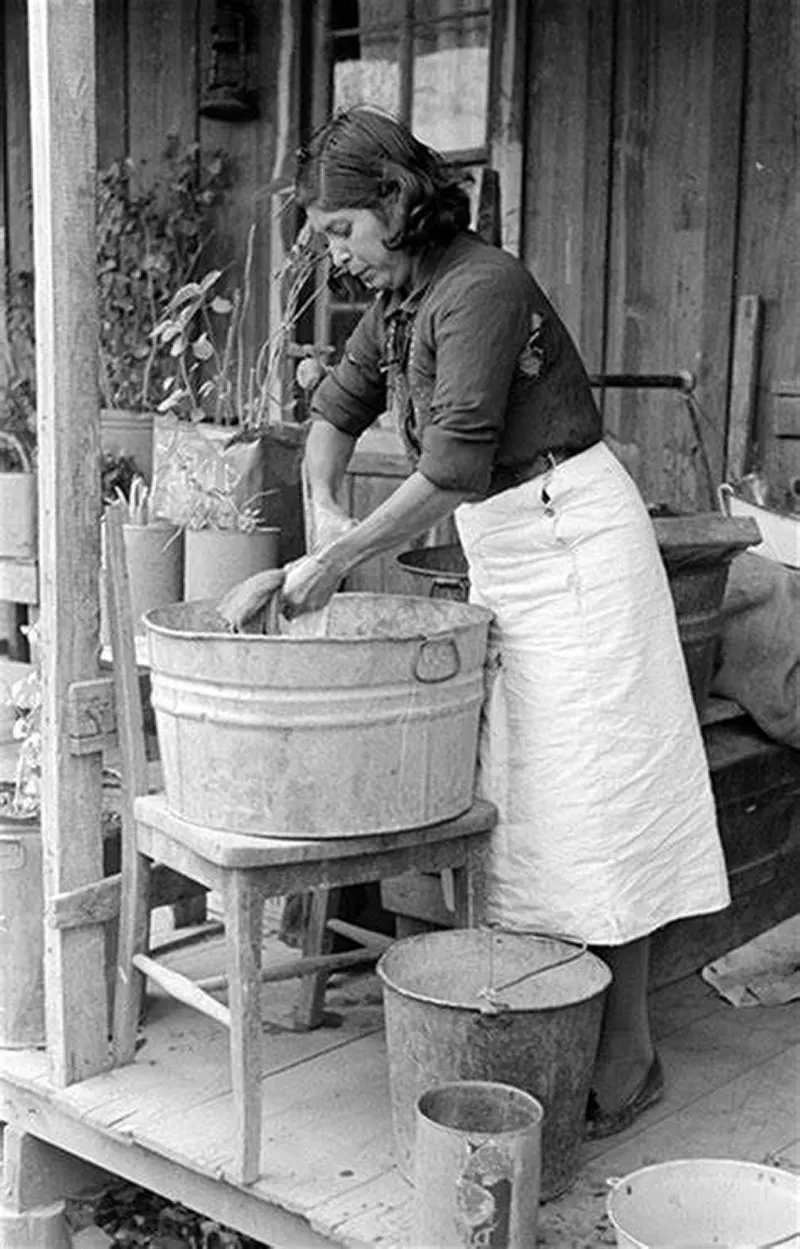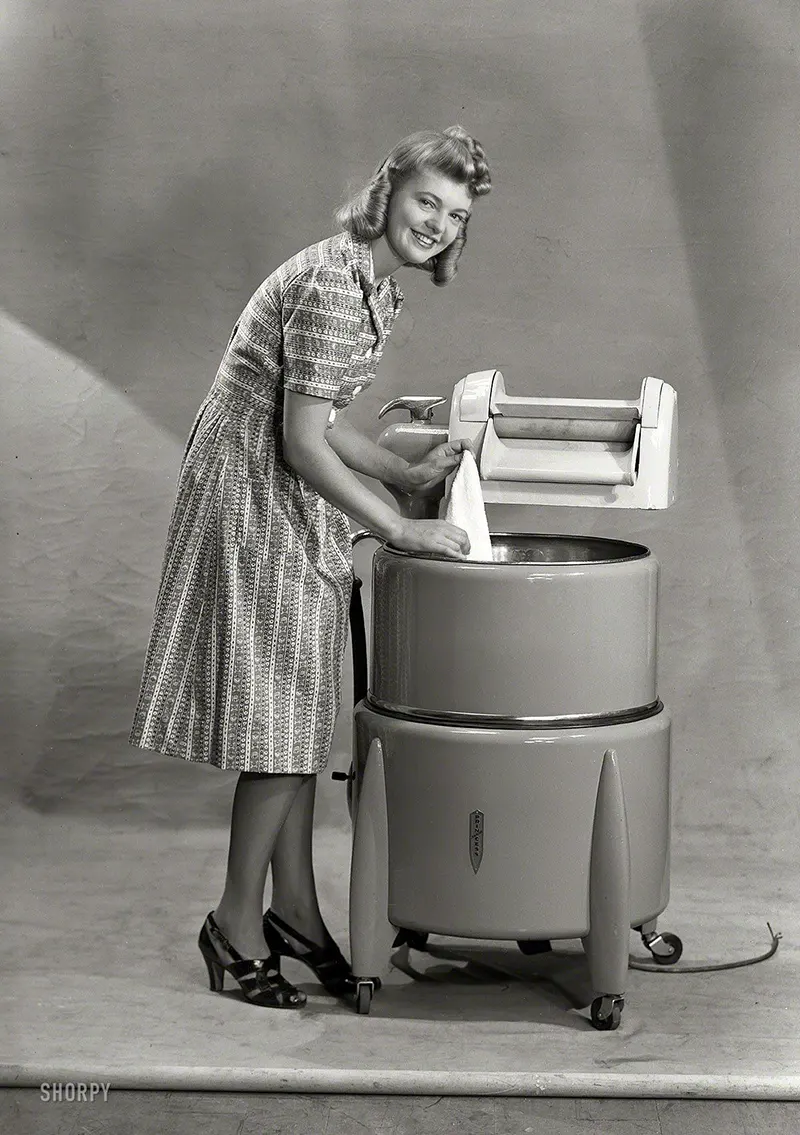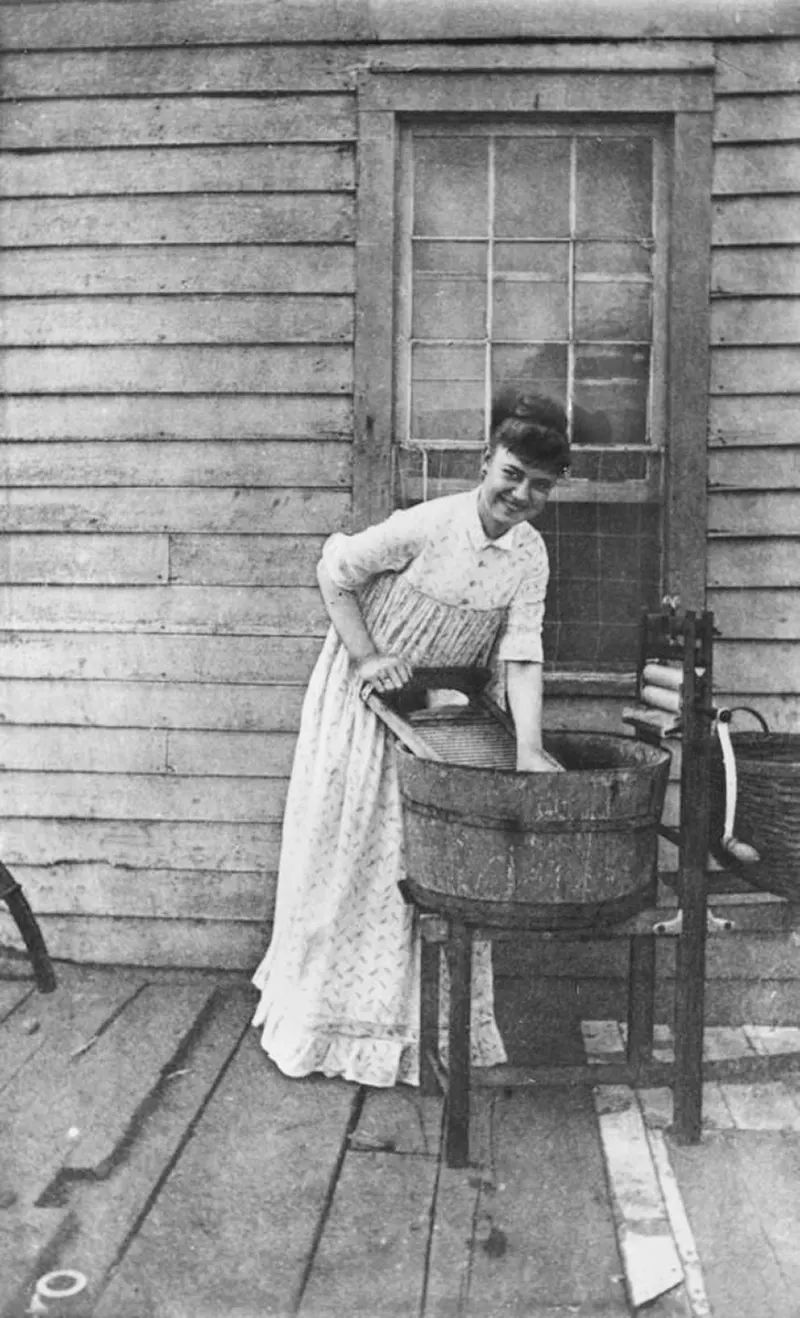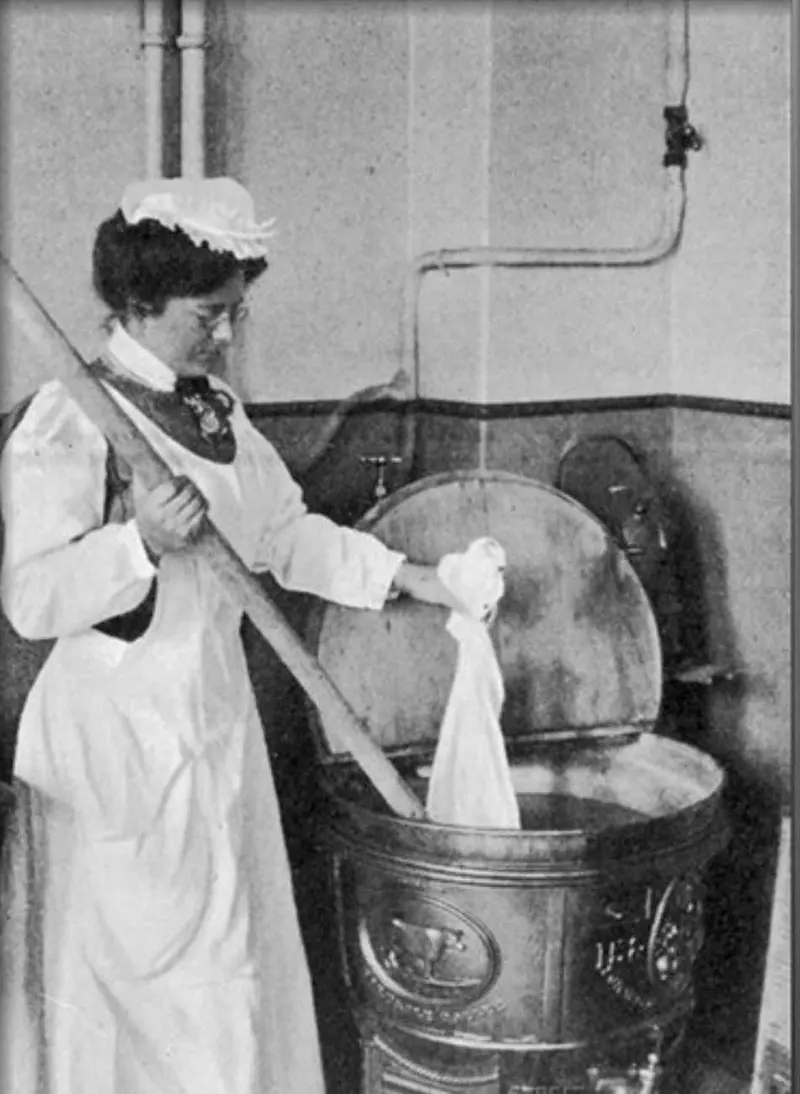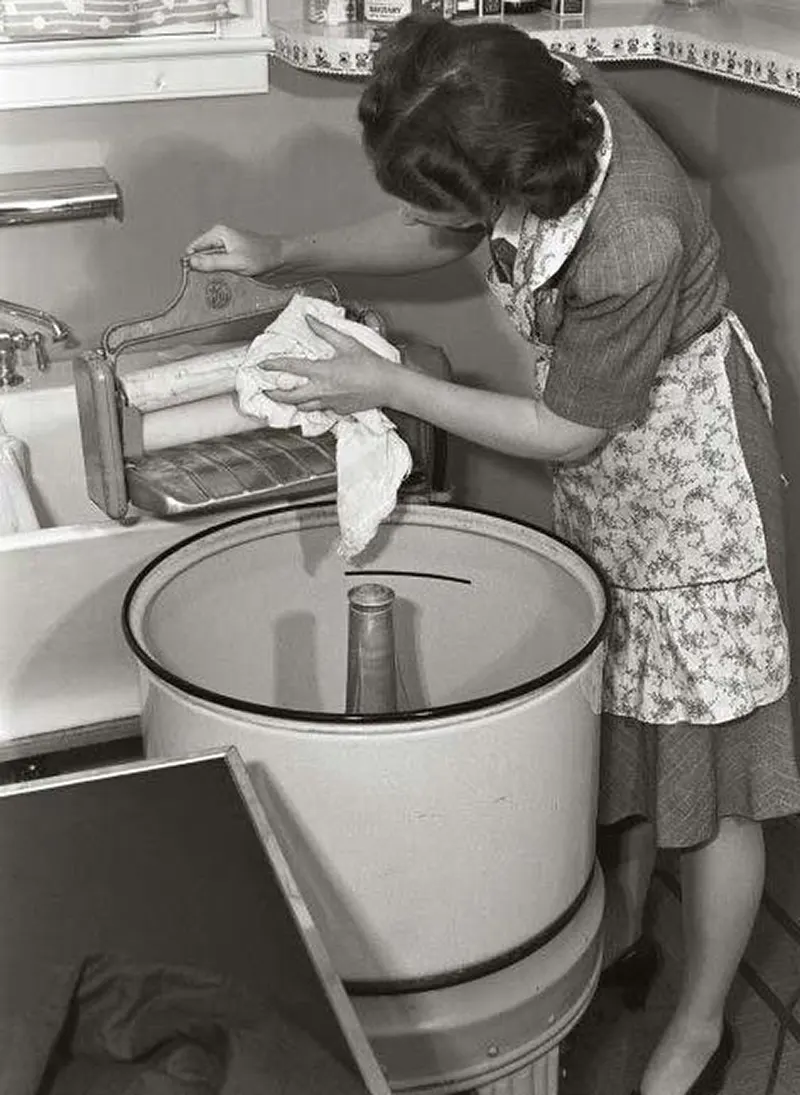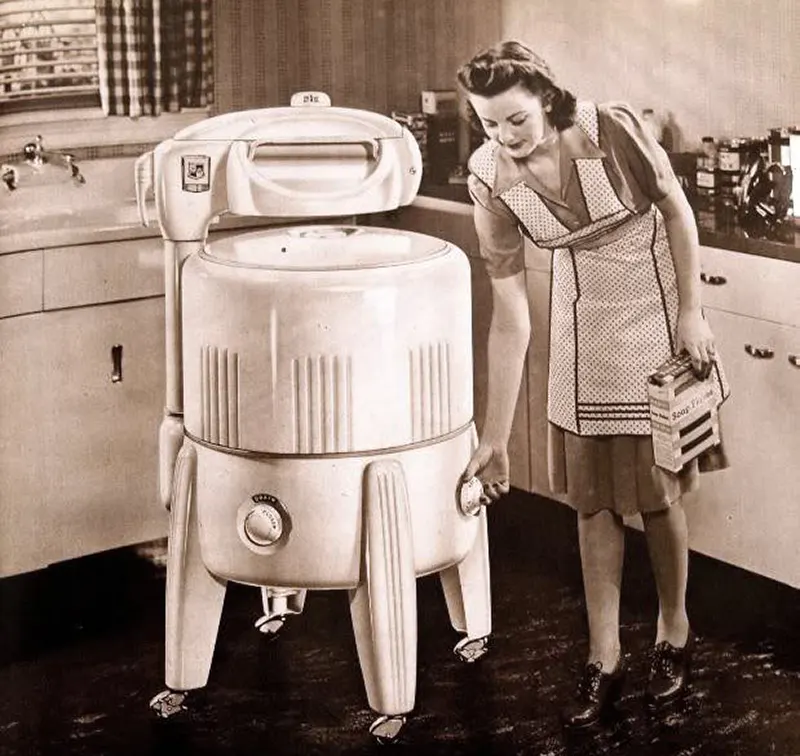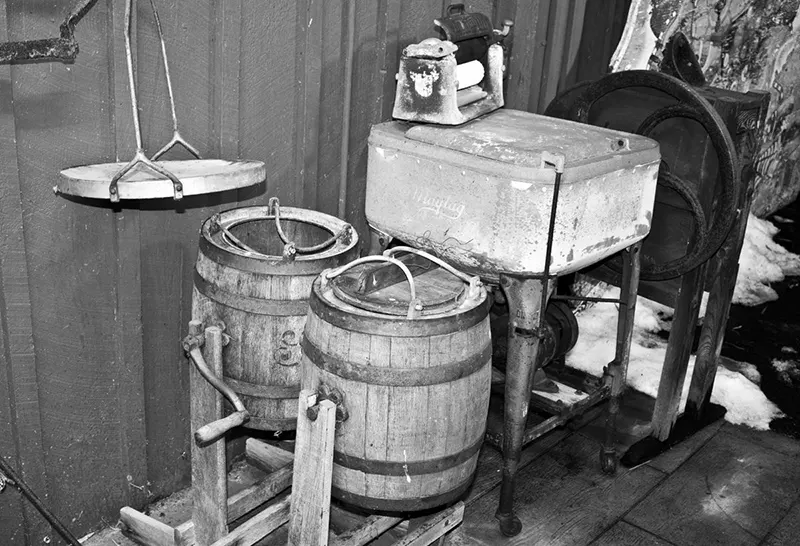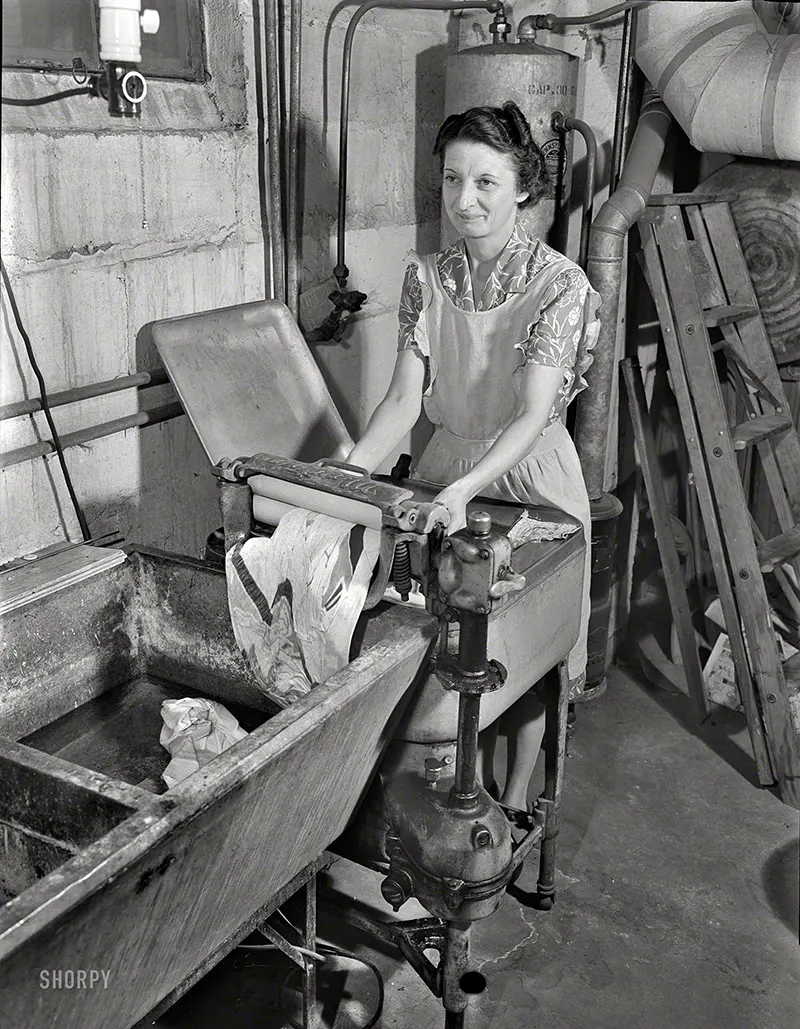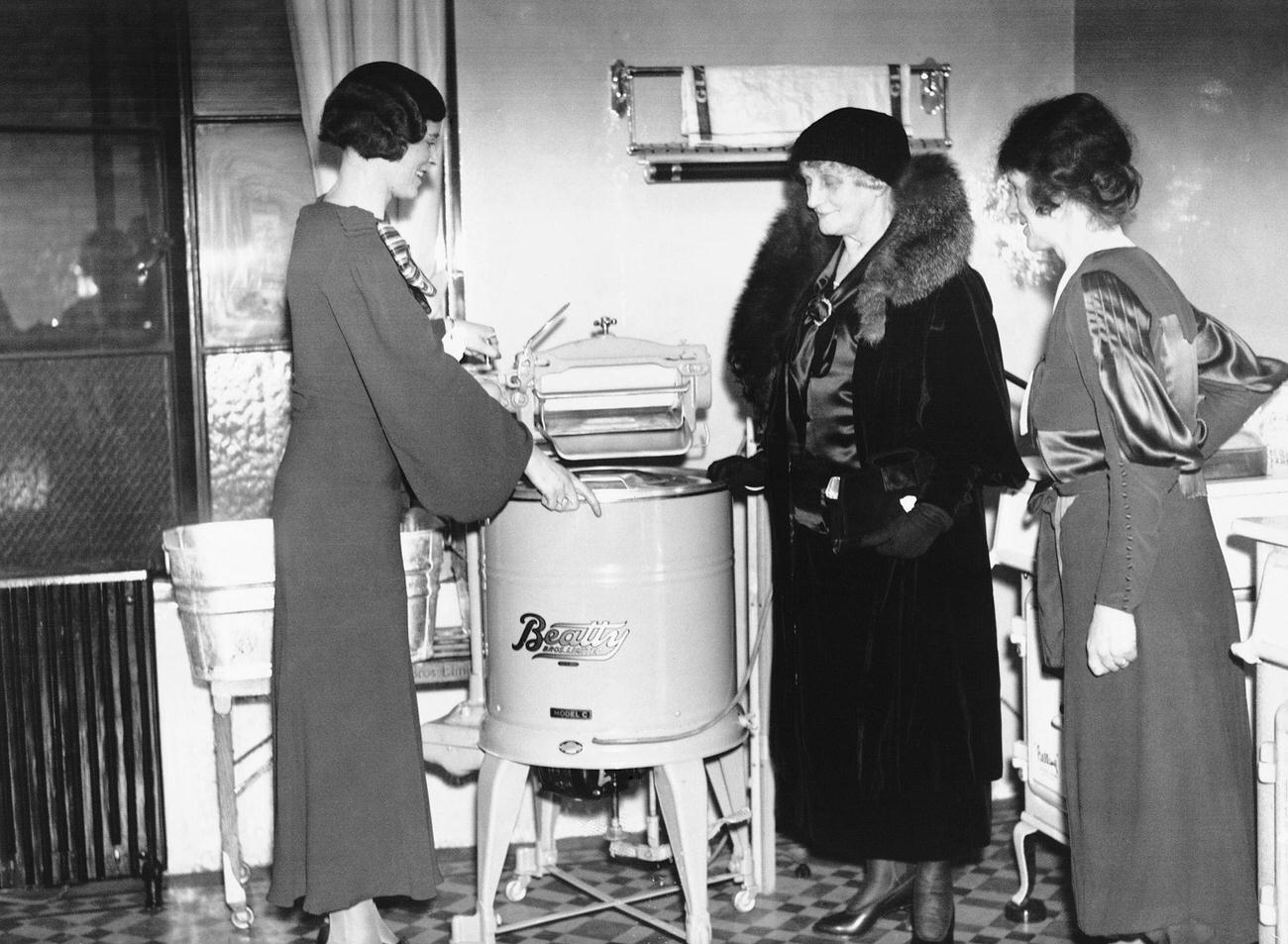The story of washing machines is a fascinating one, teeming with ingenuity and reflecting the march of technology. From the late 19th century to the mid-20th century, the evolution of these machines transformed one of the most arduous household chores into a task of convenience. Let’s delve into this whirlwind of suds and gears, exploring how washing machines evolved over the decades.
The 1880s: The Era of Hand-Powered Machines
In the 1880s, the concept of a ‘washing machine’ was rudimentary at best. Picture a large metal drum with a crank handle – this was the typical washing machine of the time. It was entirely hand-operated. Users filled the drum with water and soap, added their clothes, and then manually turned the crank. This action rotated the clothes through the water, the mechanical agitation helping to dislodge dirt and grime.
These early machines were a step up from scrubbing clothes on a washboard, but they were still labor-intensive. The user had to physically work the crank, often for extended periods, to ensure the clothes were adequately cleaned. Draining the water was another manual task, often involving tipping the machine over or using a hand-operated pump.
The 1900s: The Introduction of Electricity
By the early 1900s, a significant leap occurred with the introduction of electricity to washing machines. These early electric washers still resembled their hand-cranked predecessors in shape and function. However, the key difference was the source of power. A small electric motor replaced the manual crank, automating the agitation process.
The user would still need to manually fill the machine with water and soap, but the laborious task of turning the crank was now handled by the electric motor. This advancement made laundry less physically demanding, although users still had to wring out the clothes by hand and manage the water manually.
The 1920s and 1930s: Advancements and Refinements
The 1920s and 1930s saw further advancements in washing machine technology. Machines from this era started to look more familiar to modern eyes. They often featured a more compact and practical design, with the introduction of a wringer mechanism on top. This wringer, usually two rollers pressed together, could be fed with wet clothes to squeeze out the excess water, significantly easing the task of drying.
Additionally, these machines began to include more sophisticated agitation mechanisms. Some models introduced oscillating or rotating agitators, which moved the clothes more effectively through the water, improving the overall cleaning process. Water management also became somewhat easier, with better drainage systems and more user-friendly controls.
The 1940s and 1950s: The Birth of the Modern Washer
Post-World War II, the 1940s and 1950s, heralded the arrival of the fully automatic washing machine – a game-changer in the world of laundry. These machines offered a level of convenience previously unimaginable. Users could now add clothes, detergent, and water, set a dial, and the machine would handle the entire washing process.
These automatic washers had built-in timers, temperature control, and various wash and rinse cycles. The introduction of spin cycles was a significant advancement, as it used centrifugal force to extract water from the clothes, drastically reducing drying time. These machines were more complex mechanically and relied heavily on advances in motor technology and control systems.
The design of these machines also became more user-friendly and space-efficient, with front-loading models beginning to appear. The washing machine was no longer just a functional appliance but a time-saving device that symbolized modern convenience and efficiency.


